
Distinguished Professor, Wuhan University of Science and Technology, Wuhan, China; Honorary Professor, Singapore University of Technology and Design, SingaporeRapid prototyping; Additive manufacturing; 3D printing; CAD; CAM
Prof. Chua is the Distinguished Professor of Wuhan University of Science and Technology and an Honorary Professor at the Singapore University of Technology and Design (SUTD). He was previously the Associate Provost for Research and the Cheng Tsang Man Chair Professor at SUTD. From 2019 to 2022, he served as the Head of the Engineering Product Development pillar. Before joining SUTD, he was a Full Professor and Chair of the School of Mechanical and Aerospace Engineering at Nanyang Technological University (NTU). He also served as the Executive Director of the Singapore Centre for 3D Printing from 2014 to 2019.
Prof. Chua has been an active contributor to the additive manufacturing (AM) field for over 35 years, having begun his journey in AM in 1990. His research focuses on 3D printing and rapid prototyping or additive manufacturing. His current work mainly centers on powder bed fusion processes such as selective laser sintering and selective laser melting, bioprinting, electronics printing, 4D printing, and food printing. He is Singapore’s foremost expert in this field and was awarded the prestigious International Freeform and Additive Manufacturing Excellence (FAME) Award in 2018. In 2024, he was honored with the Award of Excellence (Education) by the ASTM International Additive Manufacturing Center of Excellence (AM CoE) for his continuous and outstanding contributions to the field of additive manufacturing.
According to the Web of Science in 2022 and 2023, Prof. Chua is the most published and most cited scientist in the area of “Rapid Prototyping / Additive Manufacturing” (3D printing). As of 2024, he has contributed more than 500 technical papers and received over 30,000 citations. He currently serves as the Editor-in-Chief of Virtual & Physical Prototyping and the International Journal of Bioprinting.

Department of Materials Science and Engineering, University of Washington, Seattle, WA, USABioinspired materials; Damage tolerance; Engineered materials; Fatigue; Fracture; Additive manufacturing
Dwayne Arola received his training in Mechanical Engineering at the University of Washington. In addition to Materials Science and Engineering, he holds adjunct appointments in Mechanical Engineering, Oral Health Science and Restorative Dentistry. His research is broadly focused on the microstructure and mechanical behavior of materials with emphasis on process-performance relationships and aging. His interests include additive manufacturing, bioinspiration, damage tolerance, and the durability of engineering and natural materials.
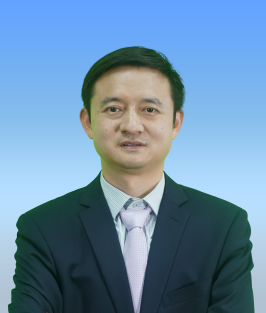
School of Materials Science and Engineering, Wuhan University of Science and Technology, Wuhan, 430081, ChinaAdditive manufacture on functional devices of composites, metamaterial or metasurface, etc.
Prof. Xiangcheng Li is National High-level Talent and National May Day Labor Medal winner. Now he is a full professor and dean in the School of Materials Science and Engineering, Wuhan University of Science and Technology (WUST), China. As the principle investigator (PI), he has presiding more than tens of national project such as National Natural Science Foundation, Key Research and Development Project of China, National Defense Projects, etc. He has authored over100 peer-reviewed journal articles and twenties of invention patent. His research outcome has been applied in the industries widely. He was granted as the National Advanced Individual of Science and Technology Industry, Award for Science and Technology Progress of Hubei Province (First Prize) and Minstry of Education, as well as the standing director of The Chinese Ceramic Society (CCS).

Department of Mechanical Engineering, National University of Singapore, Singapore, SingaporeAdditive manufacturing; 3D printing; 3D bioprinting; Artificial Intelligence; Machine learning
Dr Sing Swee Leong joins the Department of Mechanical Engineering, NUS, as an Assistant Professor in August 2021. Prior to joining NUS, he was a Presidential Postdoctoral Fellow at the School of Mechanical and Aerospace Engineering and Singapore Centre for 3D Printing, Nanyang Technological University, Singapore, after receiving the prestigious fellowship in 2020. Swee Leong was named a Highly Cited Researcher by Clarivate in 2024, 2023, and 2022. In 2022, he was also awarded the Young Professional Award by ASTM International for his work in additive manufacturing and contribution in standard development for the field. As a scientist and innovator, Swee Leong’s interest is enabling material development and creating strategic and sustainable values for Industry 4.0 and beyond through the use and integration of advanced manufacturing. He is actively involved in inter-disciplinary research.

School of Materials Science and Engineering, Shanghai Jiao Tong University, Shanghai, ChinaBiomedical metallic materials; Metallic matrix composite; Surface modification; Biological 3D printing
Prof. Wang is a Full Professor at Shanghai Jiao Tong University. His research focuses on metal matrix composites, the design and fabrication of biomedical metallic materials, and translational medicine. He has led multiple national-level research projects, and several key materials developed by his team have been successfully applied in the fields of national defense and biomedicine. He has published over 150 SCI-indexed papers, including 3 ESI Highly Cited Papers and 2 cover articles, and holds 18 authorized invention patents. He has been invited to deliver more than 20 keynote or invited talks at domestic and international academic conferences. Prof. Wang currently serves as an Associate Editor or Editorial Board Member for several SCI journals, including Virtual and Physical Prototyping.

INSA Hauts-de-France, Université Polytechnique Hauts-de-France, FranceGenerative design; Design for AM; CAPP for AM; Data-driven integrated design & manufacturing; Additive manufacturing
Yicha Zhang is currently a Full Professor (Professeur des universités) in LAMIH UMR CNRS 8201, INSA Hauts-de-France, Université Polytechnique Hauts-de-France. He is actively engaged in design and planning for additive manufacturing, product-service system design, and data-driven CAX. With a portfolio of over 97 peer-reviewed publications, he was elected as a CIRP Associate Member in 2020 and received the prestigious CIRP Taylor Medal in 2021.
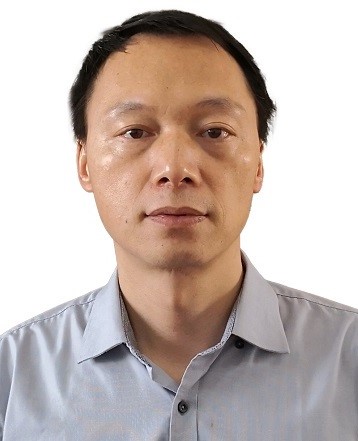
The Institute of Precision Manufacturing, and the School of Machinery and Automation, Wuhan University of Science and Technology, Wuhan 430081, China.
The Institute of Intelligent Machines, Hefei Institutes of Physical Science, Chinese Academy of Sciences, Changzhou 213164, China.Charge-Coupled Device; Surface Morphology; Centroid; Selective Laser Sintering; Gabor Filter; Perceptron; Complementary Metal-Oxide-Semiconductor; Neural Network; Fast Fourier Transform; Laser Energy Density; Deep Belief Network; Powder Bed Fusion
Prof. Kunpeng Zhu is a Professor at the School of Mechanical Engineering, Wuhan University of Science and Technology, China. His research interests focus on additive manufacturing, advanced manufacturing technologies, metal forming and processing, and the microstructure–property relationships of engineering materials.
Prof. Zhu has extensive experience in both fundamental research and applied engineering related to additive manufacturing processes and materials performance. He has published a number of peer-reviewed papers in reputable international journals and has been involved in multiple national and provincial research projects.
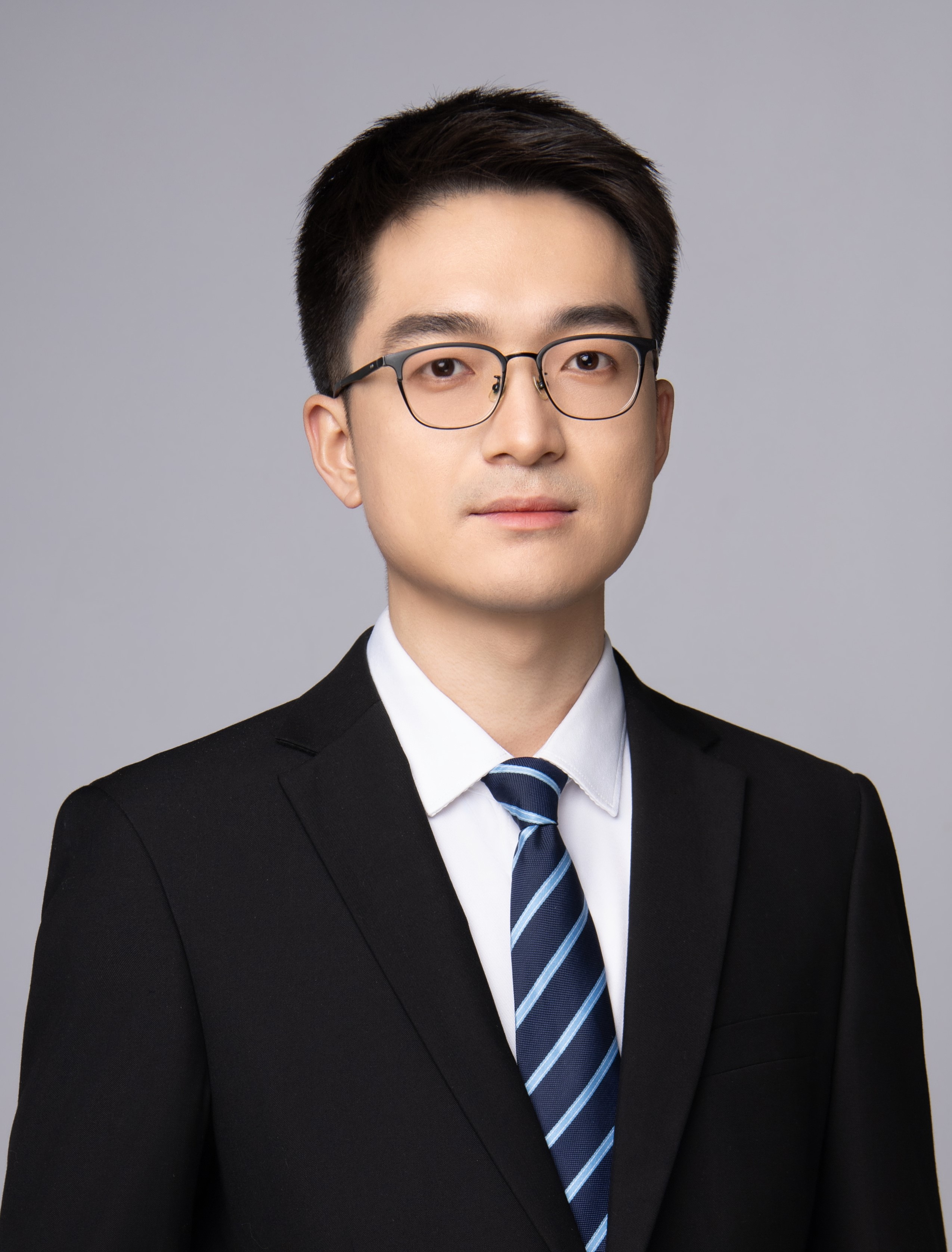
School of Traffic & Transportation Engineering, Central South University, Changsha, ChinaAdditive manufacturing; Mechanical metamaterials; Multifunctional composites and structures
Dr. Xinxin Wang is a Research Fellow at Central South University. His research focuses on mechanical metamaterials, with emphasis on the structural design, additive manufacturing, and performance characterization of novel structural materials, as well as the exploration of complex mechanical properties of composite multifunctional materials.

Institute of Thermal, Mechanics , Materials, University of Reims Champagne Ardennes, 08000 Charleville Mézières, FranceMechanics of materials; Multi-scale characterization; Composite materials; fibrous materials; Additive manufacturing
Dr. Samri ALLAOUI is a full professor at the University of Reims Champagne-Ardenne (URCA, France). Deputy director of the ITheMM Institute (more than 100 researchers), he conducts and leads research works in the field of fibrous media, composites materials and their processes (forming processes and additives manufacturing) with a focus on the process-structure-property prediction.
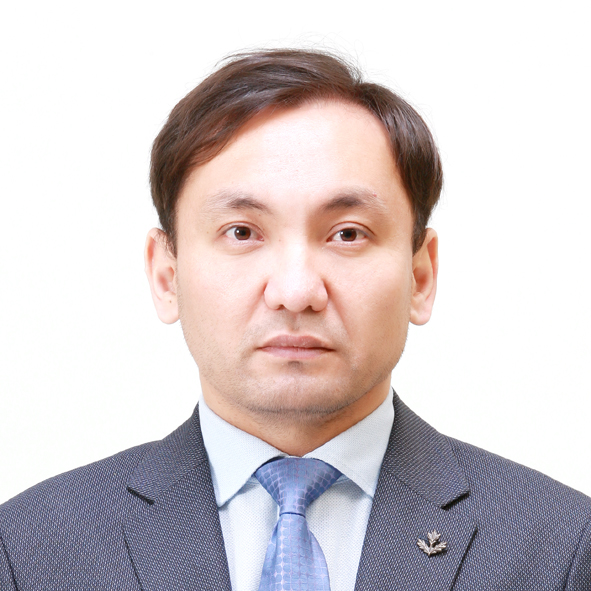
Faculty of Engineering and Natural Sciences, Materials Science and Environmental Engineering, Engineering Materials Science (EMS), Tampere University, Tampere, FinlandTribology, Fatigue, Surface Engineering, Additive Manufacturing, Material Characterization
Professor Amanov primary professional research expertise is related to studying Engineering Materials Science and Tribology, including tribo-corrosion, impact wear, fretting wear, and fatigue of machine elements. He is a member of the USA (STLE), Japanese (JAST), and Korean (KTS) tribology societies, where he is a Chair of the “Surface Engineering” committee at STLE.

School of Mechanical Engineering and Automation, Harbin Institute of Technology, Shenzhen, ChinaAdditive manufacturing; Hybrid manufacturing; Ultra-precsion machining; Metal materials; Material characterization
Yuchao Bai, PhD, is an Associate Professor and doctoral advisor at the School of Robotics and Advanced Manufacturing, Harbin Institute of Technology, Shenzhen. He is a recipient of the Guangdong Pearl River Talent Program for Young Top Talents and has been selected for the National Overseas Talent Recruitment Program. From 2022 to 2024, he was consecutively recognized in the Elsevier list of the world’s top 2% most-cited scientists. He earned his Bachelor’s degree (2013) and PhD (2018) from South China University of Technology. Following his graduation, he held positions as Research Fellow and Senior Research Fellow at the National University of Singapore. Since February 2023, he has been with Harbin Institute of Technology, Shenzhen. His research focuses on metal additive manufacturing, hybrid additive–subtractive intelligent manufacturing, and precision/ultra-precision machining.

Department of Natural Sciences, Manchester Metropolitan University, Manchester, United KingdomAdditive manufacturing; additive manufacturing electrochemistry; circular economy; Rapid manufacturing; Rapid prototyping; 3D modeling; 4D printing; Nanotechnology; 3D concrete printing
Craig Banks is Professor of Chemistry at the Manchester Metropolitan University where he carries out research into electrochemistry coupled with additive manufacturing. In 2004, he obtained a DPhil from Oxford University with Professor Richard Compton, followed by two years working with Richard for postdoctoral work. In 2006, he was appointed a lecturer at Nottingham Trent University and then moved to Manchester Metropolitan University as a senior lecturer in 2007. He has remained at Manchester Metropolitan University where he was promoted to full professorship in 2014. Craig’s research lies in the field of electrochemistry. He has published over 600 papers and works on next-generation additive manufacturing utilised with water splitting, sensor design, supercapacitors and battery development. He was awarded the Royal Society of Chemistry’s Harrison-Meldola Memorial Prize in 2011.

Department of Chemical Engineering Materials Environment, Sapienza University of Rome, Rome, ItalyMechanics of materials; Fatigue; Fracture mechanics; Structural integrity; Additive materials and weldments
Filippo Berto is full professor of Mechanics of Materials at La Sapienza University of Rome, Department of Chemical Engineering, Materials and Environment. He received the Phd from University of Florence in 2006 and the master degree in Industrial Engineering from University of Padua in 2003. He has been international chair in fracture mechanics, fatigue, and structural integrity at the Norwegian University of Science and Technology of Trondheim, Norway. Previously he was associate professor of machine design at the University of Padua, Italy.

Department of Mechanical Engineering, Cleveland State University, Cleveland, USAAdditive manufacturing; Advanced metallic and functionally graded composite (hybrid) materials for Aerospace, Energy, and Biomedical applications; Bulk metallic glass; High entropy alloys
Dr. Tushar M. Borkar is an associate professor in the Department of Mechanical Engineering at Cleveland State University. His research has been focused on the broad areas of advanced processing of new materials and materials engineering with the primary goal of advancing scientific understanding of the relationship among composition, structure, processing, and properties. This fundamental research is intended to be applied in developing advanced metallic and functionally graded composite materials for aerospace, energy, and biomedical applications. The development of a new class of materials (metallic alloys and metal matrix composites) via novel advanced processing tools, including additive manufacturing processes, along with the use of advanced characterization techniques, constitute a common thread tying my multiple research activities. These techniques are used to identify the underlying mechanisms and phase transformations governing microstructural evolution and microstructure-property relationships in complex multi-phase, multi-component materials systems. Dr. Borkar received his M.S. in Mechanical and Aerospace Engineering from Oklahoma State University and a PhD in Materials Science and Engineering from the University of North Texas.

Singapore Centre for 3D Printing, Nanyang Technological University, SingaporeInterface of biology & engineering (Engineering in Biology); Materials science & engineering; Mechanical & manufacturing engineering
Since August 2021, Paulo Bartolo is Professor at the School of Mechanical and Aerospace Engineering at Nanyang Technological University and Executive Director of the Singapore Centre for 3D Printing.
In February 2014 he joined the University of Manchester (UK) as Chair Professor on Advanced Manufacturing. At the University of Manchester, Paulo Bartolo was the Head of the Manufacturing Group, Leader of the Innovative Manufacturing Research Theme, Member of the Department of Mechanical, Aerospace and Civil Engineering Executive Committee and Member of the Departmental Committee for the Research Excellence Framework 2021 (REF21) Engineering Unit of Assessment 12 (UOA 12). He was also member of the Senior Leadership Team (SLT) Committee (2014-2017) and member of the Promotion Committee (2014-2017). At the University of Manchester he was also the Industry 4.0 Academic Lead; member of the Advanced Manufacturing Strategic Oversight Group; member of the Management Board of the EPSRC & MRC Centre for Doctoral Training (CDT) in Regenerative Medicine; theme leader of the “Industry 4.0” Societal Challenge area within the Digital Futures; and member of the Thomas Ashton Institute (Academic Lead for Industry 4.0 – implications for health and safety).
Paulo Bartolo was the founder and Director of the Centre for Rapid and Sustainable Product Development (2007-2013) at the Polytechnic Institute of Leiria (Portugal), a Research Centre of Excellence in Mechanical Engineering of the Portuguese Foundation for Science and Technology. At the Polytechnic Institute of Leiria he was Head of the Mechanical Engineering Department (2001-2009); President of the Research Assessment Committee (2009-2013); President of the Scientific Council for Research, Development and Advanced Studies (2009-2013).
He is a Fellow of CIRP (The International Academy of Production Engineering) and served the Academy as Chairman of the CIRP Scientific Technical Committee on Electro-Physical and Chemical Processes (STC E) (2016-2019) and as Vice-Chairman of STC E (2013-2016) and Vice-Chairman of the CIRP Collaborative Working Group on Biomanufacturing (2010-2012). Paulo Bartolo is also Advisor of the Brazilian Institute of Biofabrication (INCT-BIOFABRIS) funded by the Brazilian Government.

School of Engineering, University of Ulster, Coleraine, UKHigh precision printing; Nanotechnology; Controlled release; Biomaterials; Sensors
Dr. Ming-Wei Chang is a Senior Lecturer in the School of Engineering. Prior to this appointment, he served as an Associate Professor at Zhejiang University, where he was a member of the Academic Committee and the Overseas High-Level Talents Program of Zhejiang Province, China. Dr. Chang received his PhD from University College London and subsequently conducted postdoctoral research at the University of Oxford. From 2003 to 2008, he held the position of R&D Manager and Principal Investigator at the Industrial Technology Research Institute (ITRI) in Taiwan.
His current research focuses on the engineering of novel micro- and nanostructures for biomedical applications and healthcare technologies. Dr. Chang has authored over 125 peer-reviewed scientific publications in leading journals. He is the inventor of several innovations, including flexible CMUTs, sonic paper, herbal-based chitosan materials, and various advanced biomaterials and biomedical devices. He holds 35 international patents, many of which have been licensed to industrial partners in Taiwan, China, and the UK. He is involved in peer review for major funding bodies and academic publishers.
Dr. Chang currently serves as Course Director within the School of Engineering. He is a Fellow of the Institute of Materials, Minerals and Mining (IOM3) and serves on the editorial boards of several journals, including the International Journal of Bioprinting, Materials Science in Additive Manufacturing. He also frequently serves as a guest editor for special issues in various other academic journals.

Department of Mechanical Engineering, State University of New York (SUNY) at Stony Brook, Stony Brook, NY 11794-2300, USATopology optimization; Computational modeling; Additive manufacturing; Finite element analysis; Soft robotics
Shikui Chen joined the Mechanical Engineering Faculty at Stony Brook in the Fall of 2013. His research interests are in the area of topology optimization of customized medical devices for vascular disease treatment (NIH), topology optimization and advanced additive manufacturing of electric machines (NSF, DOE, and GE), topology optimization of soft robots, PDE-constrained optimization, and simulation-based design under uncertainty. Shikui Chen is a member of ASME and AIAA. He was the recipient of the ASME Compliant Mechanisms Theory Award in the ASME 31st Mechanisms and Robotics Conference in 2007.

Additive Manufacturing Institute, Shenzhen University, Shenzhen, ChinaAdditive manufacturing; 3D printing; High-performance materials; Integrated design and manufacturing
Professor (tenured) Zhangwei Chen is currently the Director of the Additive Manufacturing Institute at Shenzhen University. Prof. Chen holds a Ph.D. from Imperial College London (2014), with his PhD thesis awarded the prestigious John Kilner Prize. He has received the First Prize of Shenzhen Science and Technology Award and Second Prize of Guangdong Science and Technology Award. He is the Fellow of the International Association of Advanced Materials (IAAM) and Stanford 2% Global Top Scientists for the year 2021-2024. He has been working on the fields of materials processing, advanced manufacturing and characterizations etc. He has spent over 15 years particularly on the research of 3D printing of ceramics and the property-structure relationships. Prof. Chen is PI or Co-I of over 30 projects supported by NSFC, Guangdong Province and Shenzhen City. He has published over 130 peer-reviewed articles in various top academic journals. Some have been selected as front cover articles, feature articles and review articles. He has also actively engaged in the organization/chairing of national/international conferences. He is also a panel referee of funding agents in an international level, including European Commission, Canada EPSRC, Singapore A STAR Fund, New Zealand Marsden Fund, Switzerland, NSFC and so on. Prof. Chen works closely with domestic and overseas research institutes and industries related to 3D printing domains.

Department of Management, Information and Production Engineering, University of Bergamo, Dalmine, ItalyManufacturing technologies; Additive manufacturing; Micro-manufacturing; Process optimization; FEM and discrete event simulation techniques applied to manufacturing processes
Gianluca D’Urso is a Full Professor of Technology and Manufacturing Systems (ING-IND/16) and serves as Delegate of the Rector for Applied Research. He is President of the Scientific Board of the Consortium Intellimech and a member of the teaching board of the PhD School in Technology, Innovation, and Management (TIM). His research spans conventional and unconventional manufacturing technologies, FEM simulation applied to manufacturing processes, additive manufacturing, discrete event simulation for manufacturing and healthcare, quality improvement in manufacturing systems, and the development of optimization and forecasting models—including simulative, analytical, and mathematical approaches—for manufacturing processes.

Department of Mechanical Engineering, University of Aveiro, Aveiro, PortugalMachining & Tribology; Sustainable Manufacturing; Industrial Engineering; Engineering Education
Dr. J. Paulo Davim is a Full Professor (Professor Catedrático) at the Department of Mechanical Engineering, University of Aveiro, Portugal, where he leads the Machining & Tribology Research Group and is a member of TEMA and LASI. He holds a Doctor of Science (D.Sc.) from London Metropolitan University, a Habilitation (Agregação) from the University of Coimbra, and a Ph.D. in Mechanical Engineering from the University of Porto. He also earned both his M.Sc. and undergraduate degrees in Mechanical Engineering from the University of Porto.
Prof. Davim is internationally recognized for his contributions to machining, tribology, sustainable manufacturing, industrial engineering, and engineering education. He has been consistently ranked among the world’s top 2% scientists and is noted as the highest-ranked researcher based in Portugal according to this global metric.
He serves as Chief Editor or Associate Editor for numerous international journals and is the Series Editor of several engineering book collections. He is a Fellow of the Institution of Engineering and Technology (FIET), a Fellow of the Institute of Materials Finishing (FIMF), and holds the Eur Ing title from FEANI. With an extensive publication record, Prof. Davim has made a lasting impact on mechanical and manufacturing engineering research and education worldwide.
School of Civil and Environmental Engineering, University of Technology Sydney,Metamaterials, material and structural optimisation, energy absorption, constitutive modelling of materials, and 3D/4D printing
Dr Jianguang Fang is an Associate Professor and ARC Future Fellow at the School of Civil and Environmental Engineering, University of Technology Sydney (UTS). His research is focused on computational mechanics and optimisation of structures and materials, including phase field modelling of fracture, structural crashworthiness, energy absorption, engineering optimisation and machine learning-based design. Dr Fang was awarded the prestigious ARC Future Fellowship (Level 2) in 2024, the ARC Discovery Early Career Researcher Award (DECRA) in 2021, and the UTS Chancellor’s Postdoctoral Research Fellowship in 2017. He obtained his PhD from the University of Sydney in 2016 and was a visiting scholar at the Institute of Structural Mechanics, Bauhaus University Weimar, Germany in 2019. He has published >100 journal articles and received >8000 citations with an H-index of 50 in Google Scholar.

Department of Civil Engineering (DICIV), University of Salerno, Salerno, ItalyConstruction equipment; Construction materials; Mechanical properties; Material characterization
Luciano Feo is a Full Professor of Structural Mechanics at the University of Salerno’s Department of Civil Engineering and an Honorary Professor at the “Ovidius” University of Constanta, Romania. He holds a PhD in Structural Engineering from the University of Naples “Federico II” and a diploma in optimized material and structural design from the Ecole Polytechnique in Paris. Author of over 330 scientific publications, his research focuses on thin-walled beams, composite materials for structural strengthening, innovative and sustainable materials, multiscale modeling, and the dynamics of advanced structures. He has led numerous nationally funded projects, including PRIN2020 on nanotechnology in construction materials, and has coordinated several research sectors within the ReLUIS-DPC network. Professor Feo is a member of many international scientific societies, co-founder of the NANO_MATES Research Center, and Director of the Biomechanical Engineering Laboratory at the University of Salerno. He serves on editorial boards of several high-impact journals, including Composites Part B: Engineering, where he is Editor, and has received multiple scientific awards, such as the AIAS National Award and Elsevier’s Most Cited Paper Award for five consecutive years.
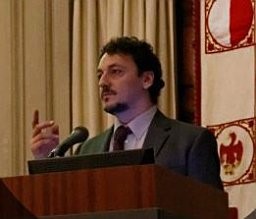
Department of Industrial Engineering, University of Florence, Firenze, ItalyMachine vision; Reverse engineering; Additive manufacturing; Materials design
Rocco Furferi graduated in Mechanical Engineering in March 2001, winning a scholarship funded by the FIAT Research Center and the ATA (Automobile Technical Association). That same year, he obtained his professional engineering qualification. In 2002, he passed a public exam for admission to the Doctoral Program (17th cycle) in Mechanical Engineering, and in 2005, he earned a PhD in Machine Design and Construction. In 2008, he became a Researcher in the ING-IND/15 Industrial Engineering Design and Methods Scientific Discipline. In 2014, he obtained the National Qualification for the role of Associate Professor in the competitive sector 09/A3 – Industrial Design, Mechanical Construction, Metallurgy. In 2015 he took on the role of Senior Researcher for the Scientific Disciplinary Sector ING-IND/15 Industrial Engineering Design and Methods. Since 2018 he has been an Associate Professor. In 2017 he obtained the National Qualification for the role of Full Professor for the same sector. He is the author of numerous publications in international journals and conferences and is registered as an inventor on several patents.

Department of Industrial Engineering, University of Naples Federico II, Naples, ItalyDesign for additive manufacturing; Generative design; FEA; Biomimetics and bioinspiration; Materials science and technology; Biomaterials; Material characterization; Concrete technologies; Biomechanical engineering; Nanomaterials synthesis; Polymeric materials
Antonio Gloria is Professor of Design and Methods of Industrial Engineering at the University of Naples Federico II. He is also Professor of “Bio-Inspired Generative Design for Additive Manufacturing”. Since 2011 he is Visiting Professor at the CDRSP - Polytechnic Institute of Leiria, Portugal. He was a Senior Researcher at the National Research Council of Italy (Institute of Polymers, Composites and Biomaterials).
Antonio Gloria is a member of the Italian Association of Design Methods and Tools for Industrial Engineering. In 2016 he was appointed as member of the Scientific Advisory Board of the Fraunhofer International Joint Laboratory IDEAS – University of Naples Federico II and member of The Royal Society (UK) - International Exchanges Committee in January 2020.
Antonio Gloria was awarded and appointed as “Future Leader” in Science and Technology (“Dialogue between Nobel Laureates and Future Leaders”, STS forum – October 2015, Kyoto, Japan). He is a member of international scientific committees and chaired technical sessions in seminars, conferences and workshops. He is currently author of international papers, book chapters, communications/contributions in international and national conferences. He is also reviewer and Editorial Board Member of international scientific journals.

West China Hospital, Sichuan University, Chengdu, China3D printing; Biomaterials; Drug delivery; Biotherapy
Maling Gou, PhD, is a Researcher and Doctoral Supervisor. He is a recipient of the National YXQN Fund and the Ministry of Education Youth CJXZ Program, a recognized Academic and Technical Leader of Sichuan Province, a “Tianfu****” Technology Elite, and the leader of a Young Science and Technology Innovation Research Team. He serves as an external expert for the Center for Medical Device Evaluation of the National Medical Products Administration, Deputy Chair of the 3D Printing Branch of the Chinese Society for Medical Biotechnology, Vice President of the Sichuan Additive Manufacturing Technology Association, and Executive Committee Member of the Lung Cancer Committee of the Sichuan Cancer Society. Additionally, he sits on the editorial boards of several international journals.
Dr. Gou received his PhD from Sichuan University in 2010 and has remained there for teaching and research. In 2012, he was a visiting scholar at the University of California, San Diego, and in 2017, he served as a senior advisor to the Chengdu Hi-Tech Zone Bioindustry Development Bureau. He has undertaken numerous national research projects, published over 100 SCI-indexed papers, and applied for more than 10 invention patents, with several successfully transferred to industry. His research achievements have been recognized with the First Prize for Natural Science from the Ministry of Education, the First Prize for Natural Science of Sichuan Province, and the Chengdu Natural Science Award. He has also received honors such as “Outstanding Teacher” and the “Young Science and Technology Talent Award” from Sichuan University, as well as the Sichuan Provincial Young Science and Technology Award.
His research focuses on the development of advanced medical 3D printing technologies and innovative drugs or medical devices. He is dedicated to creating novel 3D printing systems and materials and applying these technologies to the treatment of malignant tumors and tissue injuries, bridging basic research with clinical translation. Additionally, he works on designing targeted drug and gene delivery systems to develop new therapeutic strategies for cancer and other diseases, aiming to advance both fundamental understanding and practical applications in biomedical engineering.

Institute of Material Science and Additive Manufacturing, Technische Universität Bergakademie Freiberg, Freiberg, GermanyCatalysis; Combustion systems; Additive manufacturing; 3D printing of multimaterials
Professor Alexander Gromov is a chemical engineer with over 20 years of academic and research experience, specializing in additive manufacturing, catalysis, nanomaterials, and energetic systems. His research focuses on the 3D printing of metals and composites, multi-material systems, and the development of metal nanopowders for engineering applications.
He began his academic career at Tomsk Polytechnic University, where he worked from 2001 to 2011 as Assistant and Associate Professor, later becoming Full Professor and Head of the International Laboratory of Energochemical Synthesis. From 2009 to 2010, he also served as Deputy Vice-Rector for Research and Development at the same university. Between 2011 and 2013, he was a Visiting Professor in the Aerospace Engineering Department at Politecnico di Milano. From 2014 to 2017, he worked as a Humboldt Fellow at Fraunhofer ICT in Germany, while also serving as a Guest Professor at TH Nuremberg.
In 2017, Gromov joined the National University of Science and Technology “MISIS” as an Invited Professor and Scientific Supervisor of the rapid prototyping center “Kinetica,” a position he held until 2020. He then became Head of the Catalysis and Additive Manufacturing Laboratory and Professor in additive manufacturing at MISIS from 2020 to 2022. During 2021–2022, he was also Vice Rector for Research and Development at Moscow Polytechnic University. In 2022–2023, he worked as a Professor at Lomonosov Moscow State University and as a Visiting Professor at the University of Ulsan in South Korea.
Since 2023, Professor Gromov has been affiliated with TU Bergakademie Freiberg in Germany, first as a Visiting Scientist and Scientific Researcher, and since January 2025, as a Senior Researcher at the Institute of Machine Elements, Design and Manufacturing. His current work focuses on projects in additive manufacturing funded by the Alexander von Humboldt Foundation.
His research interests include additive manufacturing of metals and ceramics, catalysis and combustion processes, nanomaterial synthesis, and sustainable process engineering. Over the years, he has been actively involved in international collaborations and projects supported by organizations such as the Alexander von Humboldt Foundation and TUBAF Innovation Fonds.

College of Materials Science and Technology, Nanjing University of Aeronautics and Astronautics, Nanjing, ChinaLaser-based additive manufacturing of high-performance; Multi-function metallic components
Prof. Dr. Dongdong Gu is currently a Full Professor of the College of Materials Science and Technology of Nanjing University of Aeronautics and Astronautics (NUAA) and the Director of Jiangsu Provincial Engineering Laboratory for Laser Additive Manufacturing of High-Performance Metallic Components. He received his Ph.D. in Materials Processing Engineering from NUAA in 2007. He was an Alexander von Humboldt Research Fellow in the Fraunhofer Institute for Laser Technology ILT/Chair for Laser Technology LLT, RWTH Aachen, Germany from 2009 to 2011. Prof. Gu is presently the Senior Editor of J Laser Appl (AIP Publishing) and the Editorial Board Members of 8 international peer reviewed journals including Additive Manuf (Elsevier), Int J Mach Tool Manuf (Elsevier), Appl Surf Sci (Elsevier), Heliyon (Elsevier), Int J Precis Eng Manuf (Springer), Chin J Mech Eng (Springer), Laser Eng, and Chin J Laser. He is the Standing Committee Member of Additive Manufacturing Technology Institution, Chinese Mechanical Engineering Society (CMES) and the Standing Committee Member of Laser Processing Committee of Chinese Optical Society (COS). His principal research interest is laser-based additive manufacturing of high-performance/multi-function metallic components. His obtained the financial support from more than 30 projects including National Natural Science Foundation of China (NSFC), the National Key Research and Development Program, the NSFC-DFG Sino-German Research Project, etc. Prof. Gu has authored/co-authored 1 book and more than 180 papers in a number of international peer reviewed journals. He has been involved in 32 international conferences as Chairman, Co-Chairman, Academic Committee Member and Keynote/Invited Speaker. Prof. Gu has been awarded the Fraunhofer-Bessel Research Award from the Alexander von Humboldt Foundation Germany (2019), the Mercator Fellow Grant from the German Research Foundation (DFG) (2018), the Highly Cited Chinese Authors Award from the British Institute of Physics (2018), Science and Technology Innovative Talents of China, Ministry of Science and Technology of China (2017), Cheung Kong Young Scholars Award, Ministry of Education of China (2016), Top-Notch Young Talents Program of China (2015), Excellent Young Scientists Fund from NSFC (2013), and “Green Talents” Award from the German Federal Ministry of Education and Research (BMBF) (2012).

College of Nanoscience & Nanotechnology, Pusan National University (PNU), Busan, Korea1. Bioprinting & Hydrogel-Based Tissue Engineering
2. Graphene & Carbon-Based Nanomaterials in Biomedicine
3. Tissue Engineering & Regenerative Medicine
Dr. Dong-Wook Han obtained his BS degree in the Department of Biochemistry at Yonsei University, Seoul, Korea in 1998. He completed his MS and PhD degrees in the Graduate Program of Biomedical Engineering from Yonsei University in 2000 and 2004, respectively. With two and a half years of experience as a postdoctoral fellow at the Institute for Frontier Medical Sciences, Kyoto University, Japan, Dr. Han came back to Korea. In 2008, he joined the faculty of Pusan National University (PNU) where he began his academic career as an assistant professor and is currently a full professor in the Department of Optics and Mechatronics Engineering at PNU. Dr. Han is serving as a board member of several biomedical societies and an editorial board member in many scientific journals. Since 2008, he has authored or co-authored over 160 scientific publications, possessed over 15 international and national patents, and joined several book chapters. His research interest concerns ‘BT-NT convergence’, especially tissue engineering and regenerative/translational medicine using smart nanobiomaterials, development of artificial tissues, organs and medical devices thru 3D printing, E-spining and micropatterning, and assessment of nanomaterials toxicity (nanotoxicity).
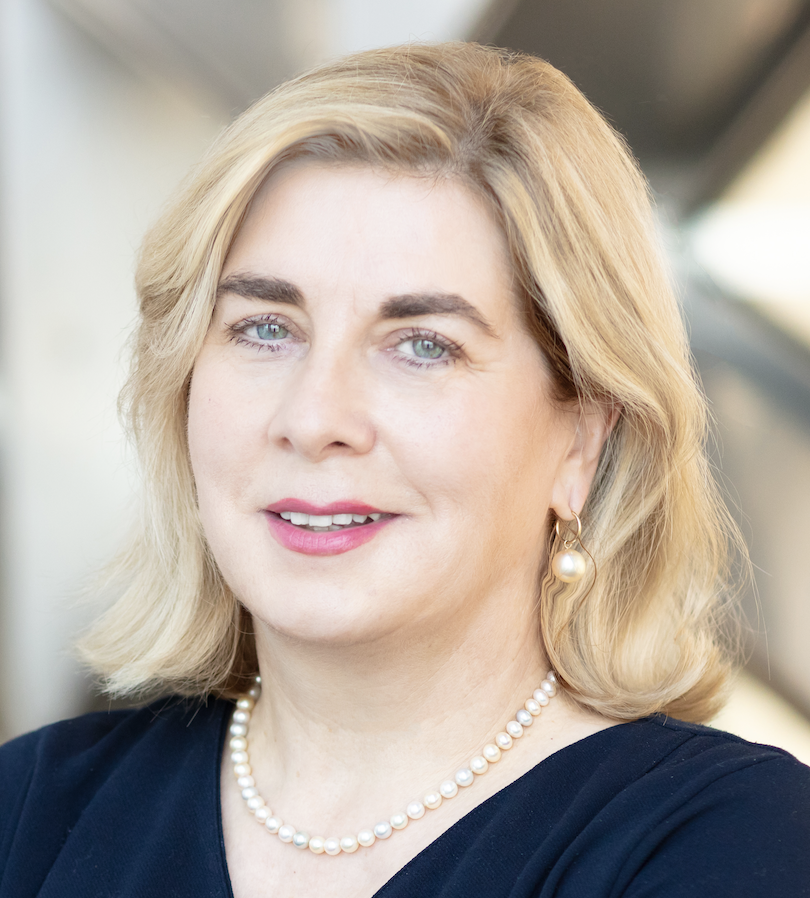
Institute of Health Care Engineering with European Testing Center of Medical Devices, Graz University of Technology (TU Graz), 8010 Graz, AustriaMolecular self-assembly; Synthetic peptide biomaterials; Novel inhibitor compounds for neurodegenerative diseases; Regenerative therapies; 3D bioprinting
Charlotte A.E. Hauser was a Professor of Bioscience and the Chair of the Bioengineering Program at King Abdullah University of Science and Technology (KAUST), Thuwal, Saudi Arabia. Before joining KAUST, she was a Principal Investigator at the Institute of Bioengineering and Nanotechnology, A*Star, Singapore, and Adjunct Professor at Nanyang Technological University, Singapore. Trained as a chemist, she did her Ph.D. in Molecular Biology at the Massachusetts Institute of Technology (MIT) and the University of Cologne, Germany, then joined INSERM in Paris, and later the Max-Planck-Institute of Psychiatry in Munich, Germany. She was a Founder and Managing Director of Octagene in Munich/Martinsried, Germany. There, she developed the first fourth generation human recombinant coagulation factor VIII (hFVIII). This recombinant human clotting factor NUWIQ® is the newest hFVIII replacement and since 2014 on the market. She is a Fellow of the American Institute for Medical and Biological Engineers (AIMBE) and since 2015 a Fellow of the US National Academy of Inventors (NAI). In 2016, she started the KAUST spin-off company PepPrint. Her research includes molecular self-assembly, synthetic peptide biomaterials, novel inhibitor compounds for neurodegenerative diseases, and regenerative therapies as well as 3D bioprinting.

State Key Laboratory for Manufacturing Systems Engineering, Xi'an Jiaotong University, Xi'an, ChinaAdditive manufacturing; Metallic materials; Materials Design; In-situ monitoring; Hybrid AM process and equipment; Microstructure and mechanical properties
Prof. Huang (born 1983) received his doctorate degree in Material Science and Engineering in 2012 from CEMEF,Mines ParisTech, France. He joined the department of Material Science and Engineering, NTNU in March 2012 as a postdoctoral fellow. He was scientist at École polytechnique fédérale de Lausanne (EPFL), Switzerland from November 2014 to November 2017. Prof. Huang's main scientific interests include microstructural evolution during thermo-mechanical processing of metallic materials and its numerical modeling, as well as additive manufacturing. He became a professor at the department of mechanical engineering at XJTU since December 2017. His work has been published in various prestigeous journals.
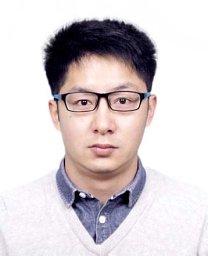
Wyant College of Optical Sciences, University of Arizona, Tucson, USA3D printing; Functional materials; Anisotropic friction; Hydrogel
Dr. Zhongying Ji is a researcher specializing in 3D printing, functional materials, anisotropic friction, and hydrogels. He earned his doctoral degree in 2019 from the State Key Laboratory of Solid Lubrication at the Lanzhou Institute of Chemical Physics, Chinese Academy of Sciences, where he then worked as a researcher from July 2019 to July 2024. From July to August 2024, he was a visiting researcher at the School of Fashion and Textiles, The Hong Kong Polytechnic University. Since September 2024, he has been serving as a Postdoctoral Research Associate II at the Wyant College of Optical Sciences, University of Arizona.

Department of Engineering, Faculty of Environment, Science and Economy, University of Exeter, Exeter, UKAdditive manufacturing; 3D printing; Smart manufacturing; Machine learning
Dr. Jingchao Jiang is a Lecturer in Production and Manufacturing Systems (E&R) in the Department of Engineering at the University of Exeter. He obtained his PhD from the University of Auckland, New Zealand, and later worked as a Postdoctoral Researcher at The Chinese University of Hong Kong. His research interests include additive manufacturing, sustainable manufacturing, biomedical applications of additive manufacturing, and the integration of AI and machine learning into manufacturing processes.

Design and Manufacturing Laboratory, FWSD Department, University of Thessaly, Karditsa, GreeceManufacturing process; Materials processing; 3D printing; Additive manufacturing; Material extrusion
Ioannis D. Kechagias graduated from the Department of Mechanical Engineering of the University of Patras (1995). He worked in the Laboratory of Dynamics and Theory of Machines and Mechanisms & Production Systems and Automation of the Construction Sector. In Dec. 2001 he was awarded the title of Doctor of Mechanical Engineering of the University of Patras. He served as Deputy Chief of Staff in the Technical Corps (Aug. 1998- Sep. 2000). Since 1995 he has been active as a Research Associate and Researcher in more than 10 research programs funded by the EU and the General Secretariat for Research and Technology. He was appointed to the rank of Assistant Professor in October 2004 at the Technical Institute of Thessaly (Department of Mechanical Engineering). He was promoted to Associate Professor in September 2012 and Full Professor in December 2016. In January 2019 he transferred to the University of Thessaly in the General Department, and in October 2020 he moved to the Department of Forestry, Wood Sciences & Design. He has taught at Greek and European Universities. He has written a book and has more than 100 peer-reviewed papers in International journals and conferences.

Department of Aerospace Engineering, Khalifa University of Science and Technology, Abu Dhabi, United Arab EmiratesAdditive manufacturing; Composite manufacturing; Architected materials; Multifunctional materials and composites; Advanced materials technologies; Mechanics of advanced materials and structures; Multiscale and multi-physics modeling
Dr. Kamran Ahmed Khan is an Associate Professor in Aerospace Engineering at Khalifa University of Science and Technology, UAE. He received both his M.Sc. and Ph.D. degrees in Mechanical Engineering from Texas A&M University, USA. Before joining Khalifa University, he worked as a post-doctoral fellow at King Abdullah University of Science and Technology, Saudi Arabia.
Dr. Khan's research interests include the development of experimentally validated macro/micro/nano-mechanics-based constitutive theories for small and large deformation multi-scale and multi-physics behavior of polymers, metals, particulate composites, fiber reinforced composites, metamaterials, smart materials, architected materials, multifunctional composites, and advanced manufacturing processes simulation, and the associated numerical implementation. He is an accomplished researcher in the field of coupled thermo-mechanical behavior of materials and structures for efficient thermo-mechanical systems and mechanics of soft materials. He has been recently focused on manufacturing simulation of advanced composites, characterization and thermo-mechanical modeling of additively manufactured metamaterials, lightweight smart and multifunctional architected materials for healthcare, automotive, aerospace structure, and energy applications. Professor Kamran has published over 100 publications in archival journals and conference proceedings. Dr. Khan has served as the principal/co-principal investigator of more than five projects, amounting to more than $1.1 million, sponsored by various agencies and industries. He has led several collaborative research and industrial-sponsored projects including supervising M.S., Ph.D., and Postdoctoral Fellows. He is currently a reviewer of several international research journals. He is also a member of the American Society of Mechanical Engineers (ASME) and the Association of Former students at Texas A&M University.

Department of Materials Science and Engineering, Pohang University of Science and Technology, Pohang, KoreaMetallic materials; High entropy alloy; Metal 3D printing; Severe plastic deformation; FEM
Professor Hyoung Seop Kim is the Chair Professor at the Graduate Institute of Ferrous Technology, Pohang University of Science and Technology (POSTECH), Republic of Korea. He leads the Bulk Metallic Glasses Group and has made significant contributions to the fields of metallic materials and their processing. His research spans the mechanical behavior modeling of porous and amorphous materials, severe plastic deformation for nanostructured metals, the development and processing of high entropy alloys, alloy design for metal additive manufacturing and heterostructuring, as well as the application of computer simulation and artificial intelligence to study metal plastic deformation and thermo-mechanical behaviors.
Professor Kim has been recognized with numerous honors, including being elected a Fellow of the Korean Academy of Science and Technology (2012) and the National Academy of Engineering of Korea (2019). He received the MMI Springer Award in 2015 and the THERMEC2021 Distinguished Award in 2021. Since 2021, he has held the title of SeAh Chair Professor at POSTECH.
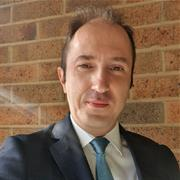
Australian Institute for Innovative Materials (AIIM), University of Wollongong, Wollongong, Australia Additive manufacturing; Corrosion science; Surface treatment and coatings; Embrittlement; Microstructural analysis using advanced characterisation techniques; Development of corrosion-resistant alloys; Materials degradation
Dr. Majid Laleh is a Research Fellow in the Australian Institute for Innovative Materials (AIIM) at the University of Wollongong. His primary research interest is to understand the relationship between materials’ microstructure and composition and their environmental degradation behaviour including localised corrosion, atmospheric corrosion, and hydrogen embrittlement. He was previously the vice-chancellor’s research fellow at Deakin University, where he also completed his PhD in 2020. He is the recipient of several awards including 'Young Sceintist Research Prize‘ from The Royal Society of Victoria in 2020 and ‘Brian Cherry Award' from The Australian Corrosion Association in 2019. He is currently working under the ARC research Hub for Australian Steel Innovation, in collaboration with BlueScope.

Department of Mechanical and Aerospace Engineering, Missouri University of Science and Technology, Rolla, United StatesInnovative smart & additive manufacturing
Dr. Ming C. Leu is the Keith and Pat Bailey Distinguished Professor and Curator’s Distinguished Professor in the Department of Mechanical and Aerospace Engineering, Missouri University of Science and Technology. He founded Missouri S&T’s Center for Aerospace Manufacturing Technologies in 2004 and has been serving as its director until 2016.
He also served as the Director of Intelligent Systems Center, 2003-2020. Prior to joining Missouri S&T, he was a Program Director at the National Science Foundation, 1996-1999, the State Chair Professor in Manufacturing Productivity at the New Jersey Institute of Technology, 1987-1996, and a faculty member at Cornell University, 1981-1987. Professor Leu obtained his Ph.D. degree in 1981 from the University of California at Berkeley, his M.S. degree in 1977 from the Pennsylvania State University, and his B.S. degree in 1972 from the National Taiwan University, all in Mechanical Engineering.
His research interests include additive manufacturing, 3D printing, smart manufacturing, intelligent robotics, and cyber-physical systems. He has published over 500 refereed papers in professional journals and conference proceedings, as well as one e-book, 11 book chapters, and 5 granted U.S. patents.
Dr. Leu has received numerous professional awards including, among others, the ISC/MST Distinguished Investigator Award (2022), International Freeform and Additive Manufacturing Excellence (FAME) Award (2020), ASME Milton C. Shaw Manufacturing Research Medal (2018), University of Missouri President’s Leadership Award (2017), ASME Blackall Machine Tool and Gage Award (2014), ISFA Hideo Hanafusa Outstanding Investigator Award (2008), ASME Dedicated Service Award (2004), SME University Lead Award (1994), NJIT Harlan J. Perlis Research Award (1993), NSF Presidential Young Investigator Award (1985), SAE Ralph R. Teetor Education Award (1985), FPRS Wood Award (1981), and best paper recognition from multiple professional conferences.
He was elected to SME Fellow in 2018, CIRP Fellow in 2008, and ASME Fellow in 1993, and is a member of Sigma Xi, Tau Beta Pi, and Phi Kappa Phi honor societies.

School of Mechanical and Manufacturing Engineering, The University of New South Wales (UNSW Sydney), Sydney, NSW 2052, AustraliaAdditive manufacturing; Physical metallurgy; Metals & alloys; Machine learning; Sustainability
Dr Xiaopeng Li is currently an Associate Professor in the School Mechanical and Manufacturing Engineering at UNSW Sydney, leading a research group working on additive manufacturing and advanced materials research. He received his PhD degree in Materials Engineering from The University of Queensland, Australia in 2013, where his PhD thesis won the Best Thesis Award by Australian Research Council Centre of Excellence for Design in Light Metals in 2013. After his PhD, he joined The University of Western Australia as an Assistant Professor, working on additive manufacturing of metallic glasses, light alloys and their composites till 2016. Following this, he joined one of the world-famous additive manufacturing groups led by Prof Jean-Pierre Kruth in KU Leuven, Belgium as a Research Fellow till 2017. In 2020, Dr Li was awarded Australian Research Council DECRA Fellow. Since 2020, Dr Li is listed as World’s Top 2% Scientists in Materials & Applied Physics & Enabling Strategic Technologies in the database of the most-cited scientists developed at Stanford University.

Departments of Mechanical and Aerospace Engineering & Materials Science and Engineering, University of California, Los Angeles, United StatesAdditive manufacturing; Scifacturing (science-driven manufacturing); Super metals by nanoparticles self-dispersion; Scalable nanomanufacturing; Smart manufacturing
Professor Xiaochun Li is the Raytheon Endowed Chair in Manufacturing Engineering in the Departments of Mechanical and Aerospace Engineering & Materials Science and Engineering at University of California, Los Angeles (UCLA). He received his Ph.D. at Stanford University in 2001, MS degree at Ohio State University in 1997, and dual BS degrees in Mechanical Engineering and Applied Physics at Tsinghua University in 1992.
He is the pioneer and global leader in fundamental study, commercialization and practical applications of nanotechnology enabled manufacturing of complex metal structures and systems for sustainability. He currently serves as the Director of Smart Manufacturing Innovation Center at UCLA in the national Clean Energy Smart Manufacturing Innovation Institute (CESMII), while he served as the inaugural CTO for CESMII between 2016 and 2018. He is a holder of multiple best paper awards and more than 30 patents, including more than 10 of those licensed and commercialized by industry worldwide. Dr. Li was previously a professor in the Department of Mechanical Engineering and Materials Science Program at University of Wisconsin-Madison (UW-Madison) from 2001 to 2013. He served as the Director of Nano-Engineered Materials Processing Center (NEMPC) at UW-Madison between 2009 and 2013.
Dr. Li has been elected Fellow of National Academy of Inventors in 2021. Dr. Li received 2002 National Science Foundation CAREER award, 2003 Jiri Tlusty Outstanding Young Manufacturing Engineer Award from Society of Manufacturing Engineers, 2008 Howard F. Taylor Award from American Foundry Society (AFS), and 2022 ASME William T. Ennor Manufacturing Technology Award. He is a fellow in American Society of Mechanical Engineers, Society of Manufacturing Engineers, and the International Society for Nanomanufacturing.

James Watt School of Engineering, University of Glasgow, Glasgow, United KingdomLightweight materials; Advanced manufacturing; Additive manufacturing; Microstructure; Mechanical property
Dr Peifeng Li joined University of Glasgow in early 2017 as a Senior Lecturer in materials and manufacturing. Prior to this position, he was an Assistant Professor in School of Mechanical and Aerospace Engineering at Nanyang Technological University, Singapore in 2010–2017, and a postdoctoral researcher in Solid Mechanics and Materials Engineering Group at University of Oxford in 2007–2010.
Dr Li obtained his PhD in Materials Science from Imperial College London in 2006. He holds a BEng in Mechanical Engineering (1999) and an MEng in Materials Processing Engineering (2001), both from Tsinghua University.
Dr Li’s research focuses on the process-structure-mechanical property relationship of lightweight materials. One of the recent focuses has been on additive manufacturing (3D printing) of metals. The main strategy is to exploit the advantages of combined advanced experimental characterisation and material modelling techniques at various length and time scales. Application includes light alloys (Ti, Al), additive manufactured metals, metal foams, polymeric foams and fibre reinforced polymeric laminates, and ceramics for automotive, aerospace, defence and even biomedical sectors.

School of Mechanical Engineering, Wuhan University of Science and Technology, Wuhan, ChinaAdditive manufacturing; Artificial intelligence; Digital twin; Topology optimization; Shape memory alloy; Laser powder bed fusion
Xin Lin received the Ph.D. degree in manufacturing informatics from the Department of Automation, University of Science and Technology of China, Hefei, China, in 2017. She is currently an associate Professor in Wuhan University of Science and Technology, Wuhan, China. Her research interests include image processing and computer vision with applications in data analytics and condition monitoring in digital manufacturing and Additive Manufacturing.

School of Mechanical Engineering, Shandong University, Jinan, ChinaDesign for additive manufacturing; Topology optimization; Process simulation; Hybrid additive-subtractive manufacturing
Professor Jikai Liu is a doctoral supervisor at Shandong University and a Qilu Young Scholar. He received his B.S. degree in Mechanical Design, Manufacturing, and Automation in 2010 and his M.S. degree in Mechanical Engineering in 2011, both from Central South University. In 2015, he obtained his Ph.D. in Mechanical Engineering from the University of Alberta, Canada.
His research focuses on computational design and structural topology optimization, as well as additive manufacturing equipment and processes. He has led several national and provincial projects, including those funded by the National Natural Science Foundation of China, the Equipment Pre-research Common Technology Project, the Equipment Pre-research Rapid Support Project, sub-projects of the Ministry of Science and Technology Key R&D Program, and the Shandong Provincial Key R&D Program.
Professor Liu has received the Second Prize of the Ministry of Education Science and Technology Progress Award and was honored with the Best Paper Award at the International Conference on Unmanned Autonomous Systems and the National Intelligent Manufacturing Academic Conference.

Laboratory of Thermomechanical Metallurgy, École Polytechnique Fédérale de Lausanne (EPFL), Neuchâtel, SwitzerlandLaser powder bed fusion; Additive manufacturing; Metals and alloys; Metallurgy; Microstructure-property relationships
Roland Logé is an associate professor at EPFL, with a primary affiliation to the Materials Institute, and a secondary affiliation to the Microengineering Institute. After graduating in 1994 at UCL (Belgium) in Materials Engineering, he earned a Master of Science in Mechanics in 1995, at UCSB Santa Barbara (USA). He received his PhD at Mines Paristech-CEMEF (France) in 1999, where he specialized in metal forming and associated microstructure evolutions. After a postdoc at Cornell University (USA) between 1999 and 2001, he entered CNRS in France. In 2008, he was awarded the ALCAN prize from the French Academy of Sciences, together with Yvan Chastel. In 2009 he became head of the Metallurgy-Structure-Rheology research group at CEMEF. In 2011, he launched a “Groupement de Recherche” (GDR), funded by CNRS, networking most of the researchers in France involved in recrystallization and grain growth. In 2013, he became Research Director at CNRS. In March 2014 he joined EPFL as the head of the Laboratory of Thermomechanical Metallurgy.
Roland Logé is active in the field of processing of metals and alloys in the solid state, focusing on the ability to tailor the microstructures, and the associated material properties. Thermal and mechanical paths are simulated experimentally and numerically, together with the induced microstructure changes. While most of the activities were so far related to recrystallization, grain growth, textures and grain boundary engineering, extensions of the microstructure design approach progressively include precipitation, phase transformation, and grain refinement phenomena, with applications to bulk forming as well as powder metallurgy and additive manufacturing.

Department of Engineering Mechanics, Zhejiang University, Hangzhou, ChinaMechanics of materials and structures; Impact engineering; Energy absorption of structures and materials; Novel materials and structures; Additive manufacturing
Professor Guoxing Lu is currently a Qiushi Distinguished Chair Professor at Zhejiang University. He obtained his B.Eng. degree from Jilin University in 1984, an M.Sc. from Cranfield University in 1986, and a Ph.D. from the University of Cambridge in 1989. Before joining Zhejiang University, he was a faculty member at Nanyang Technological University, Singapore, and later served as Chair of the Department of Mechanical and Product Design Engineering in the Faculty of Science, Engineering and Technology at Swinburne University of Technology, Australia.
Professor Lu’s research focuses on impact mechanics, the mechanical properties of novel materials under high loading rates, crashworthiness, and energy absorption of materials and structures. He also works on the design and analysis of innovative structures, including origami, thin-walled, and sandwich structures.
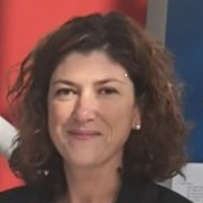
Department of Mechanics, Mathematics and Management, Polytechnic University of Bari, Bari, ItalyAdditive manufacturing; Welding; Laser materials processing; Metals & alloys
Professor Sabina Luisa Campanelli is an Associate Professor in the Department of Mechanics, Mathematics, and Management at the Polytechnic University of Bari, Italy. Her research focuses on additive manufacturing, welding, laser materials processing, and the study of metals and alloys. She has published over 100 scientific papers, which have been cited more than 3,600 times, reflecting her significant contributions to these fields.

Department of Metal Production and Processing, SINTEF Industry, NorwayMulti-scale and multi-physics simulation; Alloy design; Light metals; 3D printing; Digital manufacturing
Dr. Xiang Ma is a Senior Research Scientist at SINTEF Industry, where he has been working since June 2007. He obtained his Ph.D. in Materials Engineering from Deakin University, Australia, in 2003, and subsequently worked as a research assistant at The University of Hong Kong in 2003 and as a postdoctoral fellow at Deakin University from 2003 to 2007. His research focuses on the development and application of multi-scale and multi-physics simulations in materials science, manufacturing processes, and renewable energy systems. His work encompasses alloy design and processing of light metals, metal forming, 3D printing and digital manufacturing, photovoltaic-based renewable energy and storage systems, hydrogen as an energy carrier, and the modeling of natural gas and hydrogen combustion.

Mechanical Engineering, Pennsylvania State University, University Park, United StatesAdditive manufacturing; 3D sand-printing; Materials processing; Hybrid processes; Design and material characterization
Dr. Guha Manogharan is the Emmert H. Bashore Faculty Development Associate Professor of Mechanical Engineering at The Pennsylvania State University – University Park. He heads the Systems for Hybrid – Additive Processing Engineering - The SHAPE Lab which focuses on additive and hybrid manufacturing with an emphasis on biomedical, defense and aerospace applications. Dr. Manogharan received his Ph.D. (2014) and M.S. (2009) from North Carolina State University. He has received the 2022 ASME ECLIPSE award, 2021 ASTM Emerging Young Professional Award, 2020 NSF CAREER Award, 2018 International Outstanding Young Researcher in Freeform and Additive Manufacturing Award (FAME Jr), 2017 Society of Manufacturing Engineers’ Yoram Koren Outstanding Young Manufacturing Engineer Award and the 2016 Outstanding Young Investigator by Manufacturing and Design Division of Institute of Industrial and Systems Engineering. His current work is supported by NSF, DoE, ONR, AFRL and Manufacturing PA.
Department of Mechanical Engineering, Ecole Polytechnique Montreal, Montreal, CanadaAdditive manufacturing; Powder metallurgy; Materials characterization and testing; Materials processing; Physical metallurgy; Alloys design
Étienne Martin is an industrial chairholder in Powder Metallurgy and Additive Manufacturing at Polytechnique Montréal. He joined the Department of Mechanical and Mechatronics Engineering at the University of Waterloo in 2018 as an Assistant Professor. Two years later, he joined Polytechnique Montréal where he was promoted to the rank of Associate Professor.
Étienne obtained a PhD in Metallurgical Engineering from McGill University (2010) under the supervision of Emeritus Professor, John J. Jonas. He then spent 10 years in the private sector, working for prominent manufacturing companies like General Motors, SNC Lavalin, Arcelor Mittal and General Electric. During his industrial career, Étienne contributed to the development of new alloys for the most demanding components in aero and land-based gas turbine applications, as well as new parts introduction fabricated by additive manufacturing for GE Additives.
Étienne’s research uses experiments, analytical theory and computer simulations to explore the processing-structure-property relationships in structural metallics. His research interests include the mechanical properties and environmental performance of materials, alloy design, advanced materials processing and characterization. Recent work has focused on new technologies to improve processing for powder materials, improve fatigue and creep in metals through conventional forging and Additive Manufacturing, on alloy design for transportation and energy applications and development of models for Integrated Computational Materials Engineering efforts.
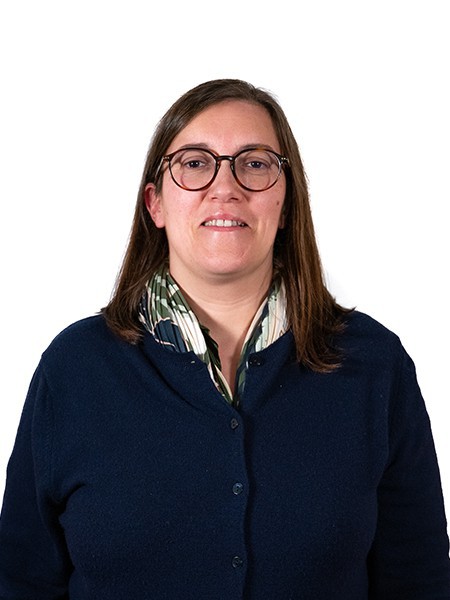
Department of Materials and Ceramic Engineering (DEMaC), CICECO – Aveiro Institute of Materials, University of Aveiro, 3810-193 Aveiro, PortugalAdditive manufacturing of metal alloys;
Powder metallurgy, especially for the development of metal matrix composites;
Manufacturing of multi-material components through a combination of technologies;
Laser modification of metal and ceramic components;
Component design for property optimization, including cellular materials and interpenetrating phase composites; Tribology
Georgina Miranda is an Assistant Professor with Habilitation at the University of Aveiro and an integrated member of CICECO – Aveiro Institute of Materials. Her research focuses on additive manufacturing, powder metallurgy, laser-based processing, cellular materials, and multi-material design and fabrication. She has authored over 128 SCOPUS-indexed publications (h-index 33; 3,700+ citations) and has been recognized since 2021 among the world’s Top 2% scientists by Elsevier and Stanford University. She serves as Principal Investigator of several funded projects, supervises PhD and master’s students, reviews for leading journals, and currently acts as Director of the Master’s Degree in Materials Engineering at the University of Aveiro.

Department of Mechanical Engineering, College of Engineering, Iowa State University, Ames, IA, United States3D printing; Additive manufacturing; Advanced materials; Computational modeling; Digital thread/Digital twin; Machine leaning and deep learning; Manufacturing processes; Welding

3D Additive Manufacturing Team, Singapore Institute of Manufacturing Technology, SingaporeAdditive manufacturing; Powder gas atomization; Metallurgy
Sharon Nai is a Senior Principal Scientist at the A*STAR Singapore Institute of Manufacturing Technology (A*STAR SIMTech). She is also the Director of the A*STAR Additive Innovation Centre (AIC), a key translational hub supported by the National Additive Manufacturing Innovation Cluster (NAMIC). Nai holds a PhD in Mechanical Engineering from the National University of Singapore. With expertise in additive and advanced manufacturing, Nai has led numerous collaborative R&D projects with both local and international industry partners, translating research into industrial applications and establishing joint labs with the industry. Nai has authored two books, contributed to two book chapters, published 150 peer-reviewed journal papers and filed two patents. Her contributions to the field have earned recognition, including the SG100 Women in Tech Award in 2021 and the A*STAR Fellow in 2023.

Faculdade de Ciências e Tecnologia da Universidade Nova de Lisboa, Caparica, PortugalWelding; Additive manufacturing; Synchrotron X-ray diffraction; Mechanical behavior of materials; High entropy alloys; Shape memory alloys
Professor João Pedro Oliveira is a Full Professor in the Department of Materials Science (DCM) and a researcher at CENIMAT-i3N – Centro de Investigação de Materiais, part of the I3N Associated Laboratory. He previously served as an Associate Professor in the same department, as an Invited Assistant Professor in the Department of Mechanical and Industrial Engineering (DEMI), and as a researcher at UNIDEMI – the Research and Development Unit in Mechanical and Industrial Engineering.

Department of Industrial Engineering, University of Trento, Trento, ItalyHeat treatment; Metallic materials; Multi-material structures; Additive manufacturing
Professor Massimo Pellizzari was born in Bolzano, Italy, on May 15, 1970. He graduated in Materials Engineering from the University of Trento in 1996 and earned his Ph.D. in Metallurgical Engineering from the University of Padova in 2000. Since January 2023, he has been a Full Professor at the University of Trento. His research expertise includes heat treatment, industrial and materials engineering, metallurgy, mechanical alloying, microstructure analysis, powder metallurgy, spark plasma sintering, surface engineering, thermal fatigue, tool materials, and wear.

Departament of Mechanical Engineering, University of Coimbra, 3030-788 Coimbra, PortugalPolymers; Material characterization; Biomaterials; Additive manufacturing; 4D printing
Ana P. Piedade has been an Associate Professor with Habilitation at the University of Coimbra since 2022. She has a BSc in Biochemistry, an MSc in Cellular Biology, and a PhD and Habilitation in Mechanical Engineering from the University of Coimbra, Portugal. She was the director of the Bioengineering and Polymer Synthesis Group of CEMMPRE, University of Coimbra, until 2018. Since 2022, she has been the coordinator of the Material and Process Group of CEMMPRE. She was PI of more than 12 National and International projects from competitive funding calls. She participated in more than 30 national and international evaluation panels for Post-Doc and PhD grants, as well as for research projects. Among her different and complementary competencies, those which can be highlighted include the surface modification of materials, including sputtering and “wet-chemistry” approaches, for several applications, with particular evidence in biomaterials, and 3D and 4D printing.

School of Materials Science and Engineering, Beihang University, Beijing, ChinaMetallic additive manufacturing; Hot isostatic pressing; Superalloys; Titanium alloys
Professor Chunlei Qiu is a Professor and Ph.D. supervisor at Beihang University. He received his Ph.D. in Metallurgy and Materials from the University of Birmingham, UK, in 2010. From 2011 to 2016, he worked as a Research Fellow at the University of Birmingham, and from 2016 to 2017, he served as an Assistant Professor in the School of Engineering at Cardiff University, UK.
Over the past decade, Professor Qiu has focused on advanced near-net-shape forming technologies, including laser additive manufacturing (AM), hot isostatic pressing, and hot extrusion. His research has extensively covered the formability, laser-material interactions, solidification behavior, defect formation and suppression mechanisms, microstructural evolution, and mechanical properties of titanium alloys, superalloys, aluminum alloys, high-entropy alloys, titanium aluminides, Invar alloys, stainless steels, and refractory metals. He has made breakthroughs in stress deformation and defect control in laser additive manufacturing of large aerospace titanium alloy components, successfully fabricating multiple large-scale aerospace parts and structures. His work also enabled the additive manufacturing of various difficult-to-form high-performance aluminum and high-entropy alloys, and the development of novel high-strength, high-toughness titanium, aluminum, and high-entropy alloys with fully equiaxed grain structures.
As a key researcher, Professor Qiu has participated in several major UK and EU projects on near-net-shape forming and metal additive manufacturing, collaborating with leading aerospace companies and institutions such as Rolls-Royce, BAE Systems, Safran, Airbus, Thales, the European Space Agency, the Beijing Institute of Aeronautical Materials, and COMAC. As a principal investigator, he has led national key R&D programs in China and contributed to projects of the Fundamental Research Center for Aero-Engine and Gas Turbine. He holds one U.S. patent, one UK patent, and six Chinese invention patents.

Department of Mechanical Engineering, Aalto University, Espoo, FinlandAdditive manufacturing; Rapid manufacturing; Rapid prototyping; 3D modeling; Medical modeling
Mika Salmi D.Sc. (Tech.) works as a professor at the Aalto University Department of Mechanical Engineering and as research director at the Aalto University Digital Design Laboratory. He completed his Ph.D. in 2013, focusing on medical applications of additive manufacturing in surgery and dental care. He has published more than 100 scientific and technical papers on the industrial and medical applications of digital manufacturing. He has docent positions at the National Defence University in Digital Design and Manufacturing Technology and at the Helsinki University in Medical Digital Design and Manufacturing. He has worked on additive manufacturing issues closely with the industry for over fifteen years. He is the president of the Finnish Additive Manufacturing Association, FIRPA, and editor of the Journal Progress in Additive Manufacturing.

Physical Metallurgy Research Group (GIMF), University of the Basque Country, Leioa, SpainAdditive manufacturing; Powder bed fusion; Selective laser melting; Shape memory alloys; Intermetallic alloys; High entropy alloys; Superelasticity; Electron microscopy; Nanoindentation; Micromechanics
Jose M. San Juan is full Professor on Physical Metallurgy at the Department of Physics of the University of the Basque Country, UPV/EHU, in Bilbao, Spain. He obtained a PhD on Materials Science at the INSA of Lyon (France), and a PhD on Physics at the UPV/EHU. In 2006-2007 he was Visiting Professor at the Massachusetts Institute of Technology, MIT, Cambridge, USA. Since 1995, Professor San Juan is leading a Research Group on Physical Metallurgy, and his research interests include Shape Memory Alloys (SMA) for cryogenic, aeronautic and aerospace applications, High-Temperature Intermetallics of Ti-Al for the aeronautic, High-Damping Materials, Nano-Mechanical behaviour of Materials for Micro-Electromechanical Systems (MEMS) and Additive Manufacturing of SMA.
He is proud of the development of the Internal Friction and Mechanical Spectroscopy Laboratory, and in 2022 he received in Rome the International Gold Medal Zener Award for his pioneering works on damping at the nano-scale in SMA. At present he is leading the research activity of a consortium, constituted by Universities and Technological Centres, in the field of Additive Manufacturing of SMA. Professor J.M. San Juan is member of several International Scientific Committees and has published more than 200 scientific works in the above fields, which can be consulted in his websites.
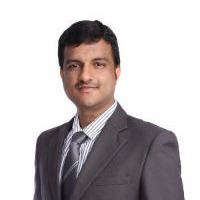
Advanced Remanufacturing and Tech Cnt, Singapore, SingaporeLaser powder bed fusion of metals; process optimization and microstructure control; process–structure–property relationships in additive manufacturing; heat treatment of additively manufactured alloys; magnetic and lightweight structural materials.
Dr. Sankaranarayanan Seetharaman is a scientist at the Advanced Remanufacturing Technology Centre (ARTC), Singapore. His research interests include advanced materials processing methods and process-structure–property relationships in metallic materials. He received his BE in mechanical engineering from Anna University, India (2007) and PhD from the National University of Singapore (2014). He was also a visiting researcher at the Indian Institute of Science, Bangalore (2012), and Helmholtz Zentrum Geesthacht, Germany (2014). He is a professional member of The Minerals, Metals, and Materials Society and actively contributes to the Light Metals Division. He has published over 70 research articles in various peer-reviewed journals and conference proceedings, and his current h-index is 29.

Department of Mechanical and Materials Engineering, University of Cincinnati, Cincinnati, United StatesManufacturing engineering; Mechanical engineering; Additive manufacturing
Jing Shi is a Professor and Program Chair of Industrial & Systems Engineering at the University of Cincinnati. He holds dual Ph.D. degrees—one in Industrial Engineering from Purdue University (2004) and another in Materials Engineering from the University of Science and Technology Beijing (1998), where he also earned his B.E. in 1992. Prof. Shi is a frequent recipient of teaching and research awards, serves regularly as a reviewer for federal funding agencies, and actively contributes to the academic community as an organizer of numerous international conferences.

Department of Materials Science and Engineering, University of Central Florida, Orlando, FL 32826, USAAdditive manufacturing by powder bed fusion; Powder synthesis by gas atomization; Multiscale materials characterization
Yongho Sohn is a Pegasus Professor and a Lockheed Martin Professor of Engineering. Dr. Sohn joined UCF in January 2001 as an assistant professor. He is an elected fellow of ASM International, and a recipient of the NSF CAREER Award (2003-08), Outstanding Materials Engineer Award from Purdue University (2016), UCF Research Incentive Awards (2006, 2012, 2017, and 2024), and UCF Teaching Incentive Awards (2007 and 2013). In 2024 he received UCF’s Research Excellence Award as the university awardee.
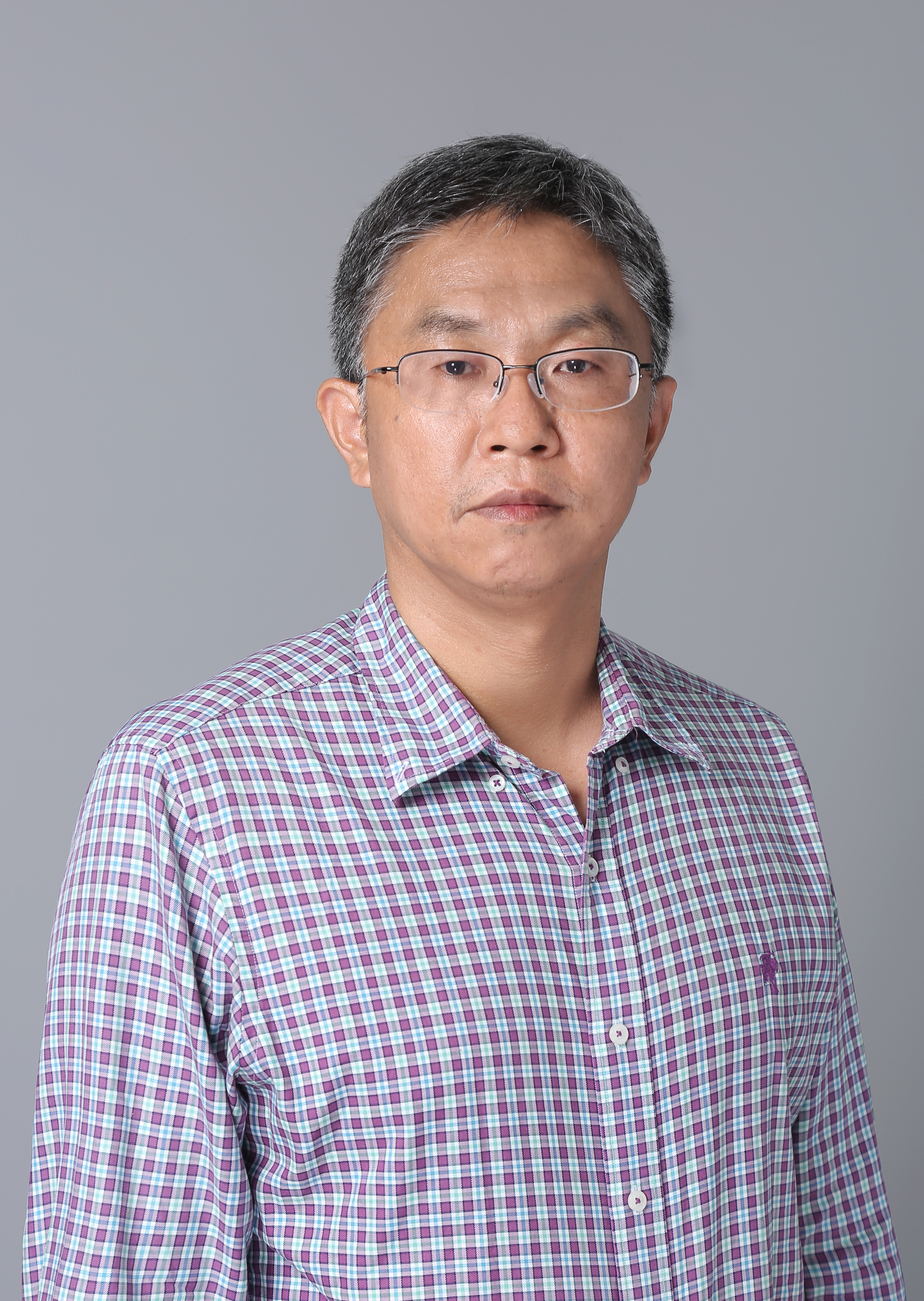
School of Mechatronical Engineering, Beijing Institute of Technology, Beijing, ChinaAdditive manufacturing; Metamaterial design and optimization; Machine learning; Mechanics of composites; Energy absorption structures; Computational mechanics; Impact dynamics; Impact protection
Prof. Song served as a Visiting Scholar at the Faculty of Engineering, National University of Singapore from November 2010 to November 2011. Since July 2014, he has been a Professor and Ph.D. Supervisor in the Department of Mechanical Engineering, Beijing Institute of Technology. His research focuses on impact dynamics of advanced materials and structures, mechanics of composite materials, and design and optimization of additive manufactured metamaterials. Prof. Song has authored over 170 publications, including more than 120 papers indexed by SCI. He has received several prestigious awards, including the Second Prize of the Natural Science Award from the Ministry of Education, the Second Prize of Beijing Science and Technology Progress Award, and the First Prize of National Defense Science and Technology Progress Award. He holds 22 authorized patents, 25 software copyrights, and has published 3 monographs.
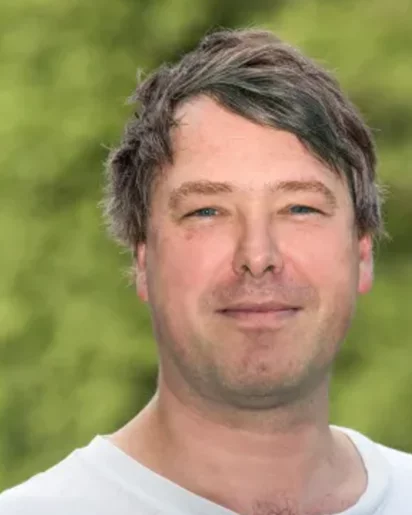
Structure and Mechanics of Advanced Materials, Laboratory for Condensed Matter, Center for Photon Science, Paul Scherrer Institute, Forschungsstrasse 111, 5232 Villigen, SwitzerlandVan Petegem’s research focuses on the use of in situ and operando X-ray and neutron diffraction and imaging to uncover how the internal structure of metals evolves during thermo-mechanical processing or additive manufacturing. By observing materials directly under relevant conditions, his work provides unique insights into the microscopic mechanisms that govern mechanical properties and performance.
Earlier in his career, Van Petegem made significant contributions to the understanding of size effects in plasticity. He studied plastic deformation in nanocrystalline metals, thin films, and single-crystal micropillars, providing fundamental insights into how deformation mechanisms change when dimensions are reduced to the micro- and nanoscale. Building on this foundation, he has explored the response of metals under more complex loading states. Using advanced diffraction techniques, he investigated the evolution of lattice strains, dislocation activity, and grain-scale interactions during uniaxial, biaxial, and shear deformation. These experiments provide essential benchmarks for validating advanced simulation approaches such as molecular dynamics and crystal plasticity modeling.
In more recent years, he has extended these efforts to the field of laser-based additive manufacturing. Operando diffraction and imaging have made it possible to follow solidification dynamics, defect formation, and residual stress development directly during printing. Such studies shed light on the fundamental origins of cracking and porosity, helping to guide the design of alloys and processing routes for more reliable 3D-printed metals.
By combining state-of-the-art experiments with modeling, his research bridges fundamental materials science and technological applications. The overarching goal is to establish knowledge-based strategies for tailoring microstructures and properties through processing.
Steven Van Petegem is a senior scientist in the Structure and Mechanics of Advanced Materials (SMAM) group at the Paul Scherrer Institute (PSI). He obtained his degree in Physics from Ghent University, Belgium, where his PhD research focused on the microstructure of nanocrystalline metals studied with positron annihilation spectroscopy combined with modeling.
He joined PSI in 2003, initially working at the Small Angle Neutron Scattering instrument in the Center for Neutron and Muon Sciences. In 2005, he moved to the Materials Science and Simulations group, where he investigated deformation mechanisms in metals using in situ diffraction techniques. From 2008 to 2015, he was responsible for the POLDI neutron diffractometer, leading experiments on time-resolved mechanical behavior of engineering materials.
In 2015, Van Petegem became part of the Photons for Engineering and Manufacturing group in the Center for Photon Science, with a focus on process–microstructure–property relationships in metallic systems. Since 2021, he has been a member of the SMAM group, where his research combines in situ and operando X-ray and neutron methods to study materials under thermo-mechanical processing and additive manufacturing conditions.

Institute of Mechanical Engineering, Materials and Transport, Peter the Great St. Petersburg Polytechnic University, RussiaAdditive manufacturing; Rapid solidification; Powder bed fusion; Binder jetting; Directed energy deposition; Material science; Powder metallurgy; 3D printing and rapid prototyping
Dr. Vadim Sufiiarov is an Associate Professor at Peter the Great St. Petersburg Polytechnic University. His research focuses on additive manufacturing and advanced powder-based processing techniques, including powder bed fusion, binder jetting, and directed energy deposition. He has extensive expertise in rapid solidification, powder metallurgy, and the development of novel materials for 3D printing and rapid prototyping. His work bridges fundamental materials science with cutting-edge applications in metal additive manufacturing.

Department of Civil & Infrastructure Engineering, RMIT University, Melbourne, AustraliaDynamic fracture; Thin film; Structural optimization; 3D Printing
Associate Professor Tran is a leading researcher in the field of sustainable digital construction and deputy director of Post Carbon Research Centre at RMIT University. His research is focused on the development of innovative materials with revolutionary properties for extreme loading protection, which have the potential to transform the field of lightweight structural materials.
He has established a research group that specializes in 3D printing of smart materials and biomimetic structures, which has been recognized with numerous national and international awards, including the "Highly Commendable Paper Award" at the 12th International Conference on Shock & Impact Loads on Structures.
With over 140 peer-reviewed journal articles and 6 book chapters to his credit, Associate Professor Tran is a prolific author, and his work has been widely cited in the field. His research on 3D printing in construction has received extensive media coverage, with over 300 stories in mainstream, science, and trade-focused media including Reuters, New York Post, Australian Manufacturing, and Daily Mail.
Associate Professor Tran serves as a member of the editorial board for several journals including Virtual and Physical Prototype, Nature - Scientific Reports, and Journal of Materials Science in Additive Manufacturing. He also serves on various standard committees such as ASTM and RILEM, focusing on "Quality Requirements for Additive Manufacturing in Building & Construction." His contributions to the field of digital construction have been instrumental in shaping the future of sustainable and efficient building practices.

School of Science and Technology, International Hellenic University, Thessaloniki, Greece3D printing; Composite and biologic Materials; Mechanics; Nanotechnology
Professor (Associate) Dr. Dimitrios Tzetzis is Head of the Digital Manufacturing and Materials Characterization Laboratory and Director of the MSc in Strategic Product Design, School of Science and Technology, International Hellenic University, Greece. His current research interests are focused on the manufacture and testing of composites, nanocomposites and biomaterials combined with 3D printing techniques and he is actively involved in various funded research and development projects. He is a member of scientific committees at national and European level and he is the author of more than 280 scientific publications in peer-reviewed journals and international conferences in the field of advanced materials and structures for various applications.

Department of Engineering, Public University of Navarra, Pamplona, SpainManufacturing process; Wire-arc additive manufacturing; Direct energy deposition; Mechanics of materials
Researcher and Associate Professor in Industrial Engineering at the Department of Engineering, Public University of Navarre. Ph.D. in Engineering from Tecnun and has extensive experience in manufacturing engineering. He worked as a researcher at Tecnalia. His research focuses on additive manufacturing, WAAM process optimization, and the application of machine learning. PI of projects within the Euroregion Nouvelle-Aquitaine Euskadi Navarra, as well as a national project funded by MINECO.

Department of Mechanical Engineering, New York University Abu Dhabi, Abu Dhabi, United Arab EmiratesAdditive manufacturing; 3D bioprinting; Electrohydrodynamic Jetting (EHD-jetting); Biomaterials; Polymers, Ceramics and metals; Tissue engineering
Professor Vijay is a tenure-track Assistant Professor of Mechanical Engineering and Bioengineering at New York University Abu Dhabi. He is also affiliated with the Department of Mechanical and Aerospace Engineering at Tandon School of Engineering, New York University, Brooklyn, USA. His research focus includes 3D printing and Bioprinting for tissue engineering, regenerative medicine, drug testing, and medical devices. He has published over 75 articles in peer-reviewed international journals, with a h-index of 34 and citations more than 5400. He holds editorial positions and serves as editorial board member of several reputed international journals including Bioprinting (Elsevier), Artificial Organs (Wiley), and International Journal of Bioprinting. His works include conductive scaffolds for neural tissue engineering, bioprinting of bi-layer functional human skin constructs, architected meta-materials-based design of bone implants for better biomimicry, and development of novel bioinks for bioprinting of soft tissues. He was the recipient of several prestigious awards including the President.

Department of Building and Real Estate, The Hong Kong Polytechnic University, Hong Kong, ChinaDigital construction; 3D concrete printing; Construction materials; Building information modelling
Dr. Yiwei Weng received his Dual Bachelor’s Degrees (2014) in Material Science Engineering and Financial Engineering from the University of Science and Technology Beijing, Master’s degree (2015) in Mechanical and Aerospace Engineering from Nanyang Technological University (NTU). He received his Ph.D. in Civil and Environmental Engineering from NTU in 2020. Before joining the Department of Building and Real Estate as an Assistant Professor in 2021, he was a research fellow at the NTU (2020-2021). His research focuses on digital construction, specializing in additive manufacturing, construction materials, and robotics for building and construction.

School of Automotive Engineering, Wuhan University of Technology, Wuhan, ChinaMetal additive maufacturing; Direct energy deposition; Titanium alloys; Metallic matrix composite; Multi-energy field processing
Dr. Lechun Xie is a Professor at the School of Automotive Engineering, Wuhan University of Technology. His research focuses on additive manufacturing (3D printing) of critical automotive components, titanium alloys and their composites, surface processing and strengthening of automotive parts, and advanced characterization techniques for metallic materials, including synchrotron radiation and EBSD. He received his Ph.D. in Materials Science and Engineering from Shanghai Jiao Tong University in 2015, during which he spent two years as a joint Ph.D. student in Mechanical Engineering at Northwestern University, USA. He also holds a Master's and Bachelor's degree in Materials Science from Lanzhou University. Prior to joining Wuhan University of Technology in 2018, Dr. Xie worked as an Alfred Deakin Research Fellow at the Institute for Frontier Materials, Deakin University, Australia, and as a postdoctoral researcher at the University of Alberta, Canada. He has led several national and provincial research projects and maintains active collaborations with international partners. His honors include the Hubei Province “Chutian Scholar” award, the Alfred Deakin Postdoctoral Research Fellowship, and several scholarships and conference awards for academic excellence.

Institute for Materials Research, Tohoku University, Sendai, JapanStructural materials; Additive manufacturing; Alloy design; Biomaterials; Thermomechanical processing; Titanium
Kenta Yamanaka is an Associate Professor at the Institute for Materials Research of Tohoku University, Japan. Currently, he serves as the principal investigator of the Deformation Processing Research Laboratory and also holds a joint appointment in the Department of Biomedical Engineering and Institute of Fluid Science at Tohoku University. Since 2023, he has been awarded the title of Distinguished Researcher by Tohoku University.
He earned his Ph.D. in Materials Science and Engineering from Tohoku University in 2013. Prior to this, he worked as a researcher in the Titanium Division at Kobe Steel, Ltd., Japan. Following his role as a JSPS Research Fellow, Dr. Yamanaka was appointed as an Assistant Professor in 2014 and promoted to Associate Professor in 2018 at the Institute for Materials Research, Tohoku University.
Dr. Yamanaka’s research encompasses various aspects of metallurgy and processing, including additive manufacturing, thermomechanical processing, and alloy design for metallic biomaterials, titanium alloys, steels, superalloys, high-entropy alloys, and multimaterials. He uses synchrotron and neutron diffraction techniques to quantify microstructural evolution and explore the processing-structure-property relationships. Furthermore, he is actively involved in the development of structural alloys and components for use in energy-related applications, including ammonia combustion and thermal energy storage.

School of Materials Science and Engineering, Huazhong University of Science and Technology, Wuhan, ChinaAdditive manufacturing; Materials composites; Selective laser melting; Selective laser sintering
Chunze Yan is currently a full professor at the Huazhong University of Science and Technology (HUST) and deputy director of the State Key Laboratory of Material Processing and Die & Mould Technology. He received his B.S. degree in applied chemistry (2000) and Ph.D. degree in materials processing engineering (2009) from HUST. He then worked as a postdoctoral research fellow at the University of Exeter in UK from 2010 to 2015. In 2016, he was awarded the Hundred Talents Program in Hubei Province and joined HUST as an associate professor. Then, he was exceptionally promoted to a full professor in 2017. His research works have engaged in material preparation and additive manufacturing (AM) and focused very much on micro/nano composites and their powder bed fusion AM processes. He has won the Second Prize of National Technology Invention (ranking 2), the Second Prize of National Science and Technology Progress (ranking 3), China's Top Ten Scientific and Technological Progress (core members), the First Prize of Hubei Province Technology Invention (ranking 3), and the First Prize of the Machinery Industry Science and Technology Award (ranking 10).

School of Mechanical and Aerospace Engineering, Nanyang Technological University, Singapore, Singapore3D printing; Bioprinting; Tissue engineering; Hybrid metal; AI machine learning for 3D printing
Professor and Chair of School of Mechanical & Aerospace Engineering at NTU Singapore
Top 50 Asia Women Tech Leaders 2024
SG100 Women in Tech 2021
TCT Women in 3D Printing Innovator Award 2019
Top 1% Highly Cited Researchers 2022,2024 by Clarivate
Ranked #1 in 3D printing (prior 5 years) by Scholar GPS

Department of Mechanical Engineering, Molinaroli College of Engineering and Computing, University of South Carolina, Columbia, United StatesSolidification; Microstructure modelling; Defects; Additive manufacturing; Casting and remelting
Dr. Lang Yuan is an Associate Professor at the Department of Mechanical Engineering at the University of South Carolina (UofSC). He obtained his Bachelor’s and Master's degrees in Materials Processing and Engineering from the Department of Mechanical Engineering at Tsinghua University, China, and his PhD in Materials Science from the Department of Materials at Imperial College London, UK. He worked at GE Global Research, NY, as a lead research engineer before joining UofSC in 2018, driving and developing multiscale physics-based computational models in advanced manufacturing processes. Currently, he leads the Metal Additive Manufacturing (AM) Laboratory at UofSC and focuses on developing innovative materials and processes for AM, numerically and experimentally monitoring and controlling microstructures and defect formation during alloy solidification to achieve desired mechanical and/or functional properties.

School of Materials, Sun Yat-sen University, Shenzhen, ChinaLaser powder bed fusion; Multi-material additive manufacturing; Sinter-based/binder jetting additive manufacturing; Ultrasonic additive manufacturing
Chaoqun Zhang is an Associate Professor at the School of Materials, Sun Yat-sen University. He completed his PhD studies at the University of Manchester and served as a Lecturer (PhD student supervisor) at the Shanghai Jiao Tong University from 2015 to 2020. He is a reviewer for several journals. His research interests include metal additive manufacturing (3D printing), welding of dissimilar metals, ultrasonic welding, etc.

Faculty of Mechanical Engineering, Marine Engineering and Materials Science, Delft University of Technology (TU Delft), Delft, NetherlandsBiodegradable metals; Light metals; Composites; Additive manufacturing; Extrusion
Dr. J. Zhou is an associate professor with the Section of Biomaterials and Tissue Biomechanics, Department of Biomechanical Engineering, Delft University of Technology. He earned his PhD at the same university in 1991, based on his research on the extrusion of rapidly solidified aluminum alloy powders. After his PhD, he became a research associate and remained affiliated with the Department of Materials Science and Engineering. His research interests extended from aluminum alloys to magnesium alloys and metal matrix composites, while his core research activities on materials processing and process engineering remained largely unchanged. In recent years, his research and teaching interests have shifted from materials for engineering applications to materials for biomedical applications, particularly for orthopedic applications, and from formative manufacturing to additive manufacturing. Currently, his research is focused on biodegradable metals, alloys and composites in porous or consolidated form and on powder-bed-based additive manufacturing processes.

Department of Industrial and Systems Engineering, Rutgers University-New Brunswick, New Brunswick, United StatesMetal additive manufacturing; 3D printing & biomanufacturing; Process monitoring and control; Laser processing; Physics informed machine learning
Professor Tuğrul Özel is a Full Professor at Rutgers University and Director of the Manufacturing & Automation Research Laboratory. He received his Ph.D. in Mechanical Engineering from The Ohio State University in 1998. His research focuses on advanced manufacturing, precision and micro machining, additive manufacturing, laser processing, modeling and optimization, automation, and control. He has authored and edited several books on intelligent machining, micromanufacturing, biomedical manufacturing, and modern manufacturing processes. Professor Özel has served on the scientific committees of over 60 international conferences and is an active member of SME, ASME, NAMRI, and CIRP. His research has been supported by multiple grants, including three from the NSF as well as funding from NIST and NASA

Institute of Thermodynamics, TUM School of Engineering and Design, Technical University of Munich, Munich, GermanyStereolithography; Superhydrophobic microstructures; Microfluidic manufacturing; Nanomaterials; Resins for SLA
Dr. Muhammad Amjad is a Postdoctoral researcher at the Technical University of Munich. His research focuses on the 3D printing of micro- and nanoscale superhydrophobic structures, solar water splitting, and microfluidic manufacturing. He has a strong background in nanomaterials, direct solar absorption, and nano-refrigerator-based solar refrigeration systems, aiming to advance energy-efficient and sustainable technologies through nanoscale engineering.

Department of Mechanical Engineering, Universidad San Francisco de Quito, Quito, EcuadorAdditive manufacturing; Materials science; Composites; Tribology; Machine learning
Germán Omar Barrionuevo is currently associate professor in the Department of Mechanical Engineering at the Universidad San Francisco de Quito USFQ.
He obtained his B.S. and M.S. degrees in Mechatronics and CAD/CAM, respectively, at the Universidad de las Fuerzas Armadas ESPE and his Ph.D. in Engineering Sciences by the Pontificia Universidad Catolica de Chile.
Prior to joining the USFQ, Omar was adjunct professor at Universidad Catolica del Uruguay, assistant professor at ESPE, and research assistant at University of Alberta.
His current research is focused on the applicability of machine learning to anticipate mechanical properties of materials fabricated by additive manufacturing, composites, as well as sustainable materials.

Department of Computer Science, University College London, London, UK3D printing; Acoustic levitation; Biomaterials; Machine learning
Dr Hongyi Chen is a Research Fellow in the Department of Computer Science at University College London. His interdisciplinary background involves advanced biofabrication, biomaterials design, acoustics, and AI-driven process control. He is advancing the field of biofabrication by integrating novel technologies such as acoustic levitation and machine learning. He pioneered a contactless in situ printing technique that enables omnidirectional deposition onto complex surfaces using acoustic levitation. In addition, he has developed machine learning approaches to guide bioprinting processes, particularly in the formulation and optimisation of bioinks.

Department of Mechanical Engineering, University of Porto, Porto, PortugalMetallic additive manufacturing; Multiphysics modeling; Multiscale modeling; Damage mechanics
Roya Darabi holds a Ph.D. in Computational Mechanical Engineering from Porto University (FEUP) and has extensive experience in project management within the oil and gas industry. She is a member of Iran's National Elites Foundation and is currently focused on research in multiscale process modeling for additive manufacturing technology.

School of Materials Science and Engineering, Northwestern Polytechnical University, Xi’an, ChinaMetal additive manufacturing; Multi-material additive manufacturing; Hybrid manufacturing
Dr. Wei Fan is a Professor at Northwestern Polytechnical University (NPU), where he focuses on multi-material additive manufacturing and hybrid manufacturing based on additive processes. He received his Ph.D., Master’s, and Bachelor’s degrees in Materials Science and Engineering from NPU between 2009 and 2021. From 2022 to 2024, he conducted postdoctoral research at Nanyang Technological University, Singapore.
Dr. Fan is a member of the Additive Manufacturing and Innovative Design team led by Professors Xin Lin and Weidong Huang. The team hosts several national and international research platforms, including the International Joint Research Center for Aerospace Material-Structure Integrated Design and Additive Manufacturing Equipment Technology, and the Key Laboratory of High-Performance Metal Additive Manufacturing and Innovative Design, Ministry of Industry and Information Technology of China. They have also established the NPU-Airbus Joint Laboratory for Additive Manufacturing in collaboration with Airbus Europe.
The team conducts cutting-edge research in areas such as additive manufacturing and innovative design, precision solidification theory and technologies, and multiscale thermo-mechanical-microstructural modeling and simulation of materials processing. To date, they have published over 500 academic papers and hold more than 50 invention patents related to additive manufacturing. Their technologies serve over 100 industrial partners across sectors such as aerospace, aviation, power, and energy. Research outcomes have been successfully applied to major national programs including the C919 aircraft and the Tianwen-1 Mars mission. The team’s industrial spin-off, BLT (Bright Laser Technologies), became the first 3D printing company listed on China’s STAR Market and is now among the global leaders in the field.
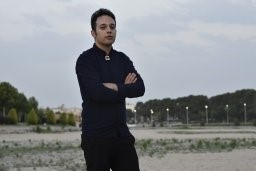
Department of Mechanical Engineering, National University of Singapore, SingaporeAdditive manufacturing; Laser powder bed fusion; Alloys; Aerospace and biomedical applications
Dr. Ghasemi is a Research Fellow in the department of mechanical engineering at the National University of Singapore (NUS). His research topic deals with laser powder bed fusion of Ti-Al alloys, and beta Ti alloys for aerospace and biomedical applications.

Department on Industrial and Mechanical Engineering, Advanced Prototyping Laboratory, University of Brescia, Brescia, ItalyAdditive Manufacturing; Laser material processing; Reverse engineering
Dr. Luca Giorleo is an Associate Professor (Docente di ruolo di IIa fascia) in the Department of Mechanical and Industrial Engineering at the University of Brescia. He earned his Bachelor's degree in Mechanical Engineering with Summa Cum Laude honors from the University of Naples “Federico II” in 2002 and obtained his Ph.D. in Materials and Production Engineering from the same university in 2005.
Throughout his academic career, Dr. Giorleo has held several research fellowships and academic positions, including at the Department of Mechanical Engineering, University of Maryland (USA), the Department for Engineering Innovation at the University of Lecce, and the Department of Mechanical Engineering at Politecnico di Milano. In 2009, he was appointed as a Researcher in the Department of Mechanical and Industrial Engineering at the University of Brescia.
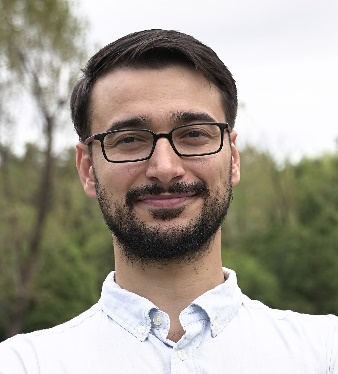
Division of Materials and Manufacturing Science, Osaka University, Osaka, JapanAdditive manufacturing; Metals and alloys; Process-Structure-Property-Performance; Post-processing
Dr. Gokcekaya holds tenure-track Associate Professor position at The University of Osaka from 2026. He served as an Assistant Professor at The University of Osaka, Additive Manufacturing Research Center since 2016 and at the Division of Materials and Manufacturing Science from 2023 to 2026. He received 2024 research advancement award from Japanese Society of Powder Metallurgy (JSPM) for his research on high entropy alloys for biological applications. He earned his Ph.D. in Materials Processing from Tohoku University in 2015 and continued his research at Tohoku University as JSPS Research Fellow until joining The University of Osaka in 2016.
His research focuses on metal additive manufacturing (AM) to establish processing-structure-property relationships with the emphasis on microstructure control, particularly crystallographic texture formation. Dr. Gokcekaya’s research encompasses various aspects of AM, including alloy design, sustainability, defect-free production optimization, Multiphysics simulations to discover microstructure formation, enhancement of structural and functional properties (H-embrittlement resistance, Thermal expansion control) for Fe-based, Ni-based, and Ti-based alloys, moreover, focusing on refractory metals (Cr, W, Mo, Ta) and alloys (RHEAs). Besides, he expands his research reach to post-processing of AMed products, such as Heat treatment procedures, application of HIP process, Machining, and surface treatment/ functionalization to realize AMed components’ industrial applications.

School of Medcine, National University of Singapore, Singapore3D printing; Bioprinting; Hydrogel; FDM; Biopolymer; Cartilage regeneration; Bone tissue engineering
Dr. Ri Han is a Research Fellow at the National University of Singapore (NUS). He has extensive experience in 3D printing, biomaterials, and scaffold fabrication for tissue engineering applications. His research focuses on polymer-based scaffolds, nanoparticle synthesis, and hydrogel bioprinting. He has published in leading journals and presented his work at international conferences. His expertise in material characterization, additive manufacturing, and biomedical applications contributes to optimizing the mechanical and biological properties of scaffolds.

Department of Civil, Chemical, Environmental and Materials Engineering, University of Bologna, ItalyWire-and-Arc additive manufacturing; Steel structure; Computational design and structural optimization
Dr. Vittoria Laghi is a junior Assistant Professor at University of Bologna. Her research activities currently focus on the application of innovative design and fabrication solutions to reduce the environmental impact of construction, with special interest on metal 3D printing technologies and structural reuse.

Department of Chemical, Materials and Industrial Production Engineering, University of Naples Federico II, 80125 Naples, ItalyWire arc additive manufacturing; Smart manufacturing; Artificial intelligence; Machine learning
Dr. Giulio Mattera is a Research Fellow at the University of Naples Federico II. His research focuses on the monitoring and control of robotic arc welding and Wire Arc Additive Manufacturing (WAAM) processes, with a particular emphasis on the application of artificial intelligence and machine learning techniques to enhance process stability, quality, and automation.

Department of Management, Information and Production Engineering, University of Bergamo, Bergamo, ItalyAdditive manufacturing; Process optimization; Micro-manufacturing; Optimization algorithm
Dr. Mariangela Quarto is an Associate Professor at the University of Bergamo, where she conducts research and teaching within the Department of Management, Information and Production Engineering. She graduated in Management Engineering in 2014 and earned her Ph.D. in Economics and Management of Technology in 2019 through a joint program between the University of Pavia and the University of Bergamo. She served as a fixed-term researcher (RTD-a from 2019 to 2021 and RTD-b from 2021 to 2024) before being appointed Associate Professor in 2024.
Her international experience includes research and teaching visits at the Technical University of Denmark (DTU), the Institute for Control Engineering of Machine Tools and Manufacturing Units (ISW) at the University of Stuttgart, and Tsinghua University in Beijing.
Dr. Quarto is actively involved in several scientific communities. She has been a member of the Italian Association for Manufacturing Technologies (AITeM) since 2016, the International Institution for Micro Manufacturing (I2M2) since 2019, and the European Scientific Association for Material Forming (ESAFORM) since 2021, where she has co-organized the mini-symposium on Additive Manufacturing since 2023. She also serves on the Scientific Committee of the World Congress on Micro and Nano Manufacturing (WCMNM) since 2021.
Her research focuses on optimizing production and cost-efficiency in advanced manufacturing technologies, with particular attention to unconventional processes such as micro-EDM and additive manufacturing techniques like Material Extrusion and Laser Powder Bed Fusion. She currently teaches Quality Improvement in Healthcare in the Master’s program in Engineering and Management for Health, and Integrated Production Systems in the Master’s program in Management Engineering.

Center for Advanced Multidisciplinary Research and Innovation (CAMRI), Chennai Institute of Technology (Autonomous),Chennai,Tamilnadu,India3D printing; Parameters optimization; Machine learning; Advanced materials
Dr. S. Raja is a versatile professional with expertise in mechanical engineering, industrial safety, and additive manufacturing. He holds a BE in Mechanical Engineering, ME in Industrial Safety, an MBA, and multiple postgraduate diplomas. With a Ph.D. in Additive Manufacturing Technologies, Dr. Raja has over five years of experience in industry and academia. His research focuses on optimizing 3D printing parameters, advanced materials, and industrial safety.

Department of Chemical, Materials and Industrial Production Engineering, University of Naples Federico II, Naples, ItalyAdditive Manufacturing; Monitoring systems; Multi-material additive manufacturing; Material characterization
Dr. Alessia Teresa Silvestri is an Assistant Professor at the University of Naples Federico II, where she specializes in additive manufacturing and related technologies. She holds a Doctor of Engineering (Ph.D.) degree and has authored around 45 scientific publications. Her research interests include additive manufacturing, monitoring systems, multi-material AM, and material characterization. Dr. Silvestri’s work focuses on advancing manufacturing processes through smart integration of materials and real-time monitoring for improved quality and performance.
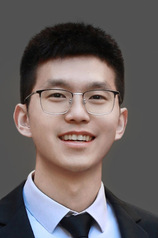
Department of Geotechnical Engineering, Colleague of Civil Engineering, Tongji University, Shanghai, China3D concrete printing; Tunnel lining printing; Smart tunnel; Digital fabrication with concrete; Active rheology control
Yaxin Tao is a Professor and Doctoral Supervisor in the Department of Geotechnical Engineering, College of Civil Engineering, Tongji University, Shanghai, China. He was selected as a National Young Talent and previously served as an ETH Fellow.
He obtained his Ph.D. in Civil Engineering from Ghent University, Belgium (2018.09–2021.11), his M.S. in Architecture and Civil Engineering from Tongji University (2015.09–2018.06), and his B.S. in Road, Bridge, and River-Crossing Engineering from Southeast University (2011.09–2015.06).
Dr. Tao’s academic career includes postdoctoral research in the Department of Structural Engineering and Building Materials at Ghent University (2021.11–2023.10), and in the Department of Building Materials at ETH Zurich (2023.10–2025.06). Since June 2025, he has been a faculty member at Tongji University.
His main research interests focus on 3D concrete printing, construction materials, building in extreme environments, tunnel lining printing, and rheological control of concrete.

Department of Industrial and Systems Engineering, Faculty of Engineering, The Hong Kong Polytechnic University, Hong Kong, ChinaNanocomposites; Additive manufacturing; Bioprinting; Micro/nanofabrication; Tissue engineering; Microwave processing
Dr. Ka-Wai Yeung is currently a CERC Postdoctoral Fellow at CSIRO in Melbourne, Australia, and a Postdoctoral Research Associate at The Hong Kong Polytechnic University. He obtained his Ph.D. in Materials Engineering from The Hong Kong Polytechnic University in 2022, with a research focus on the microwave processing of functional coatings based on nanocomposite materials. Prior to his doctoral studies, he earned an MSc in Building Services Engineering (with Distinction) from Brunel University London in 2015 and a BEng (Hons) in Building Services Engineering from City University of Hong Kong in 2012. A dedicated and passionate researcher with over 8 years of experience in material processing technologies, focusing on microwave and 3D printing technologies. Experienced in sintering metals and ceramics, sol-gel synthesis, and pyrolysis to produce functional materials.

Department of Mechanical Engineering, University of Bath, Bath, UKAdditively manufactured light alloys (grain refinement and solidification behaviour); Alloy design and process optimization; Advanced characterization and modelling; Solidification dynamics and defect formation during AM
Dr. Duyao Zhang is a Lecturer in the Department of Mechanical Engineering and a member of the Centre for Integrated Materials, Processes & Structures (IMPS). His research focuses on additively manufactured light alloys, with particular interest in grain refinement, solidification behavior, and defect formation during the AM process. He works on alloy design, process optimization, and the integration of advanced characterization and modeling techniques to better understand solidification dynamics and enhance material performance.

